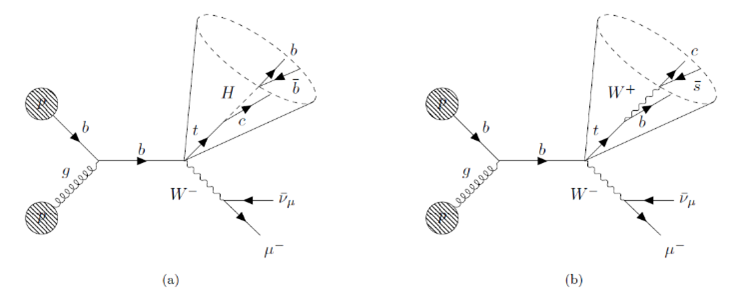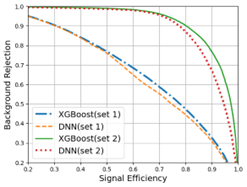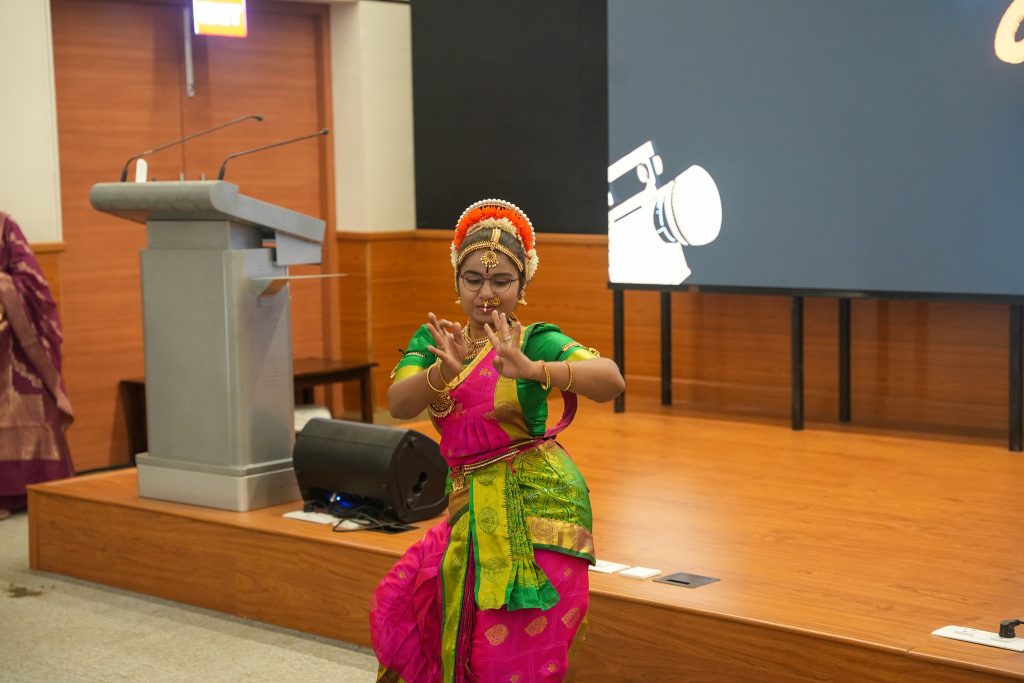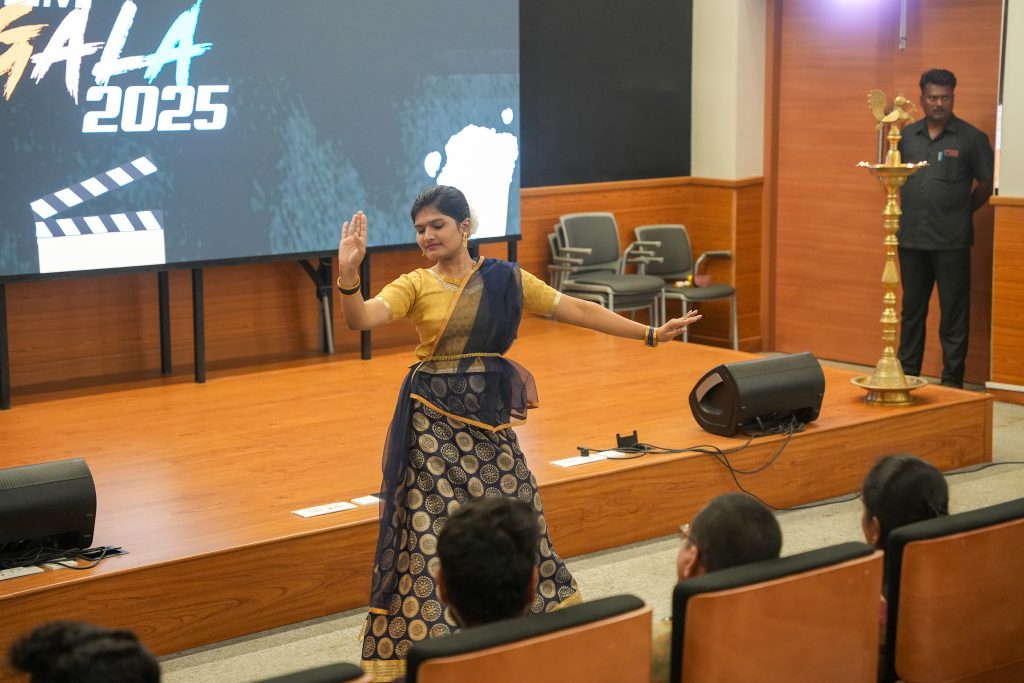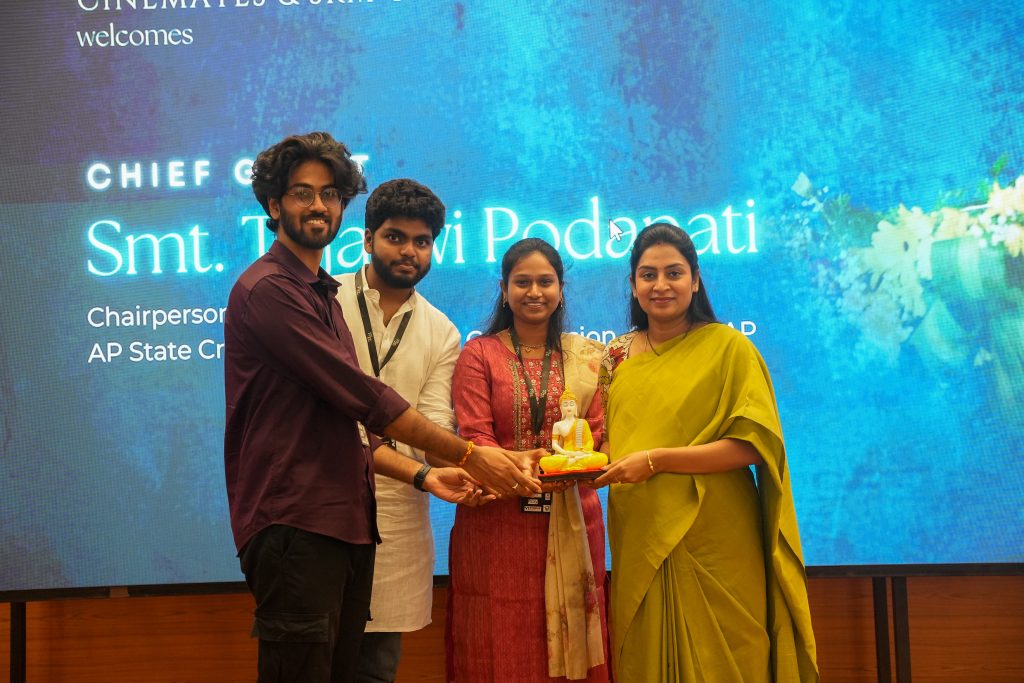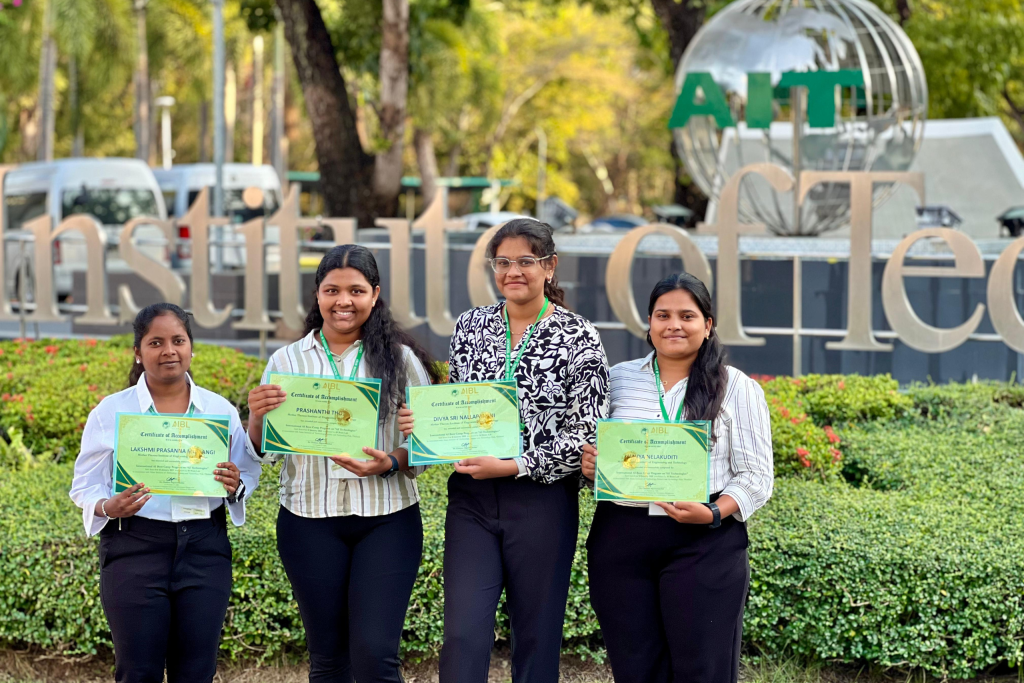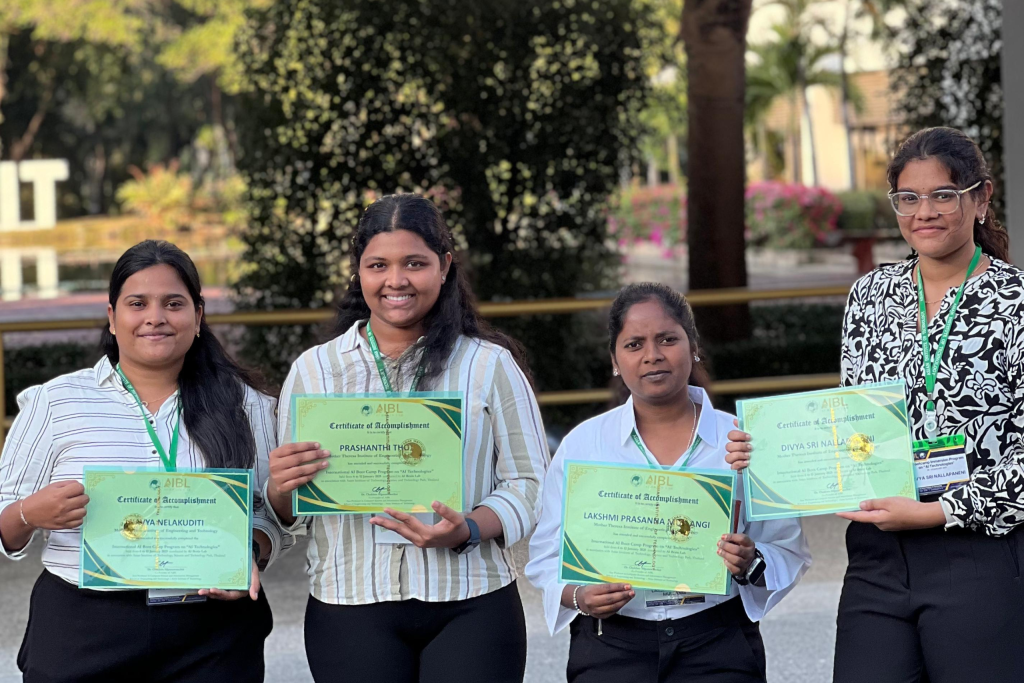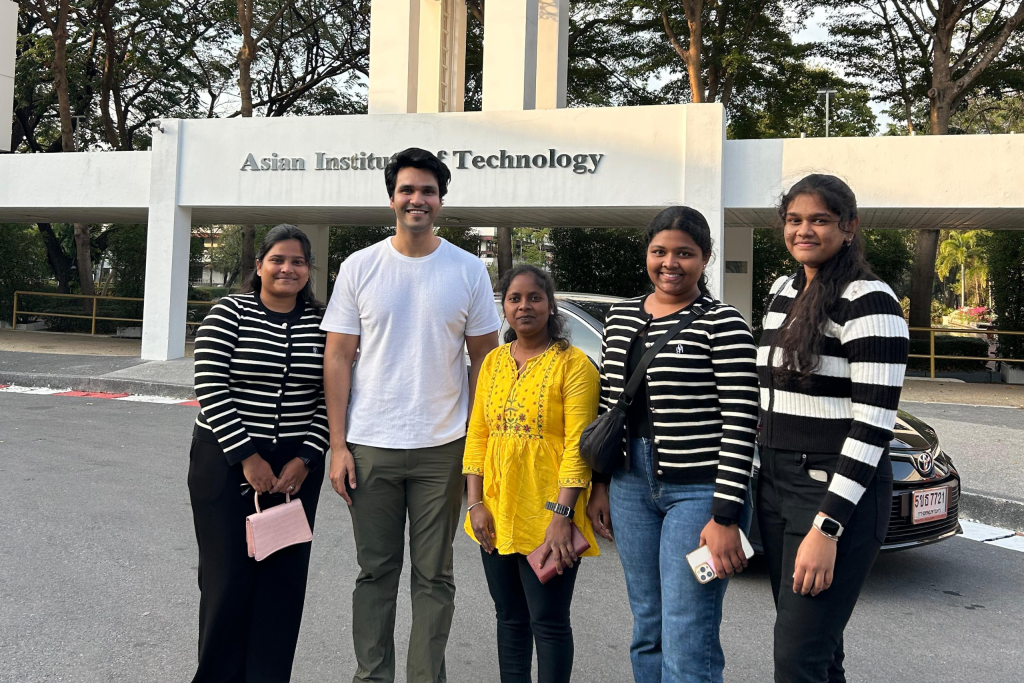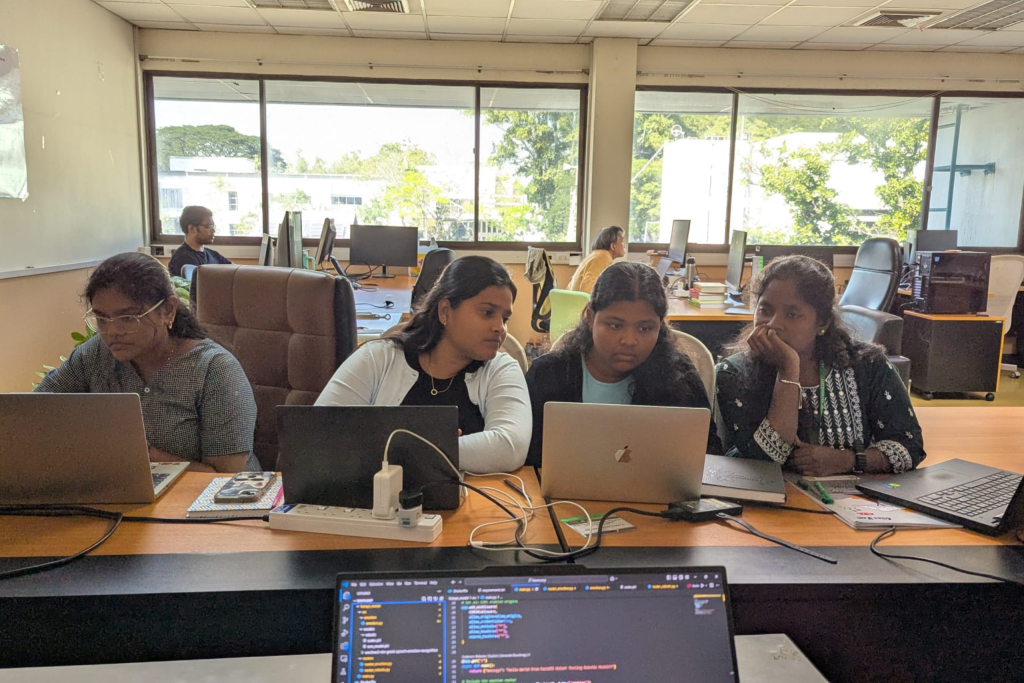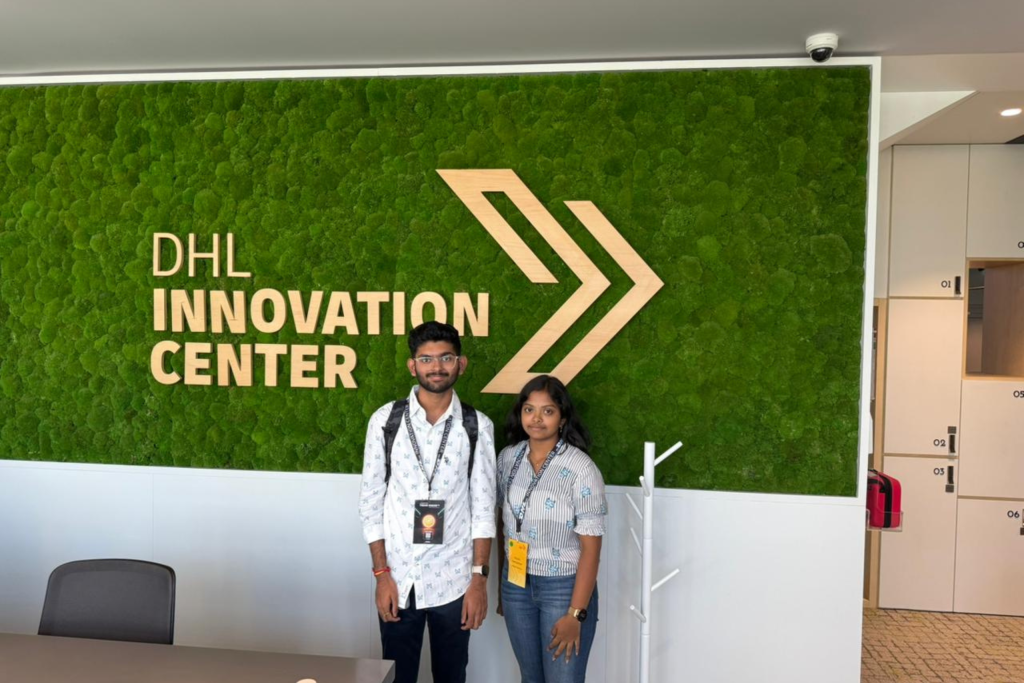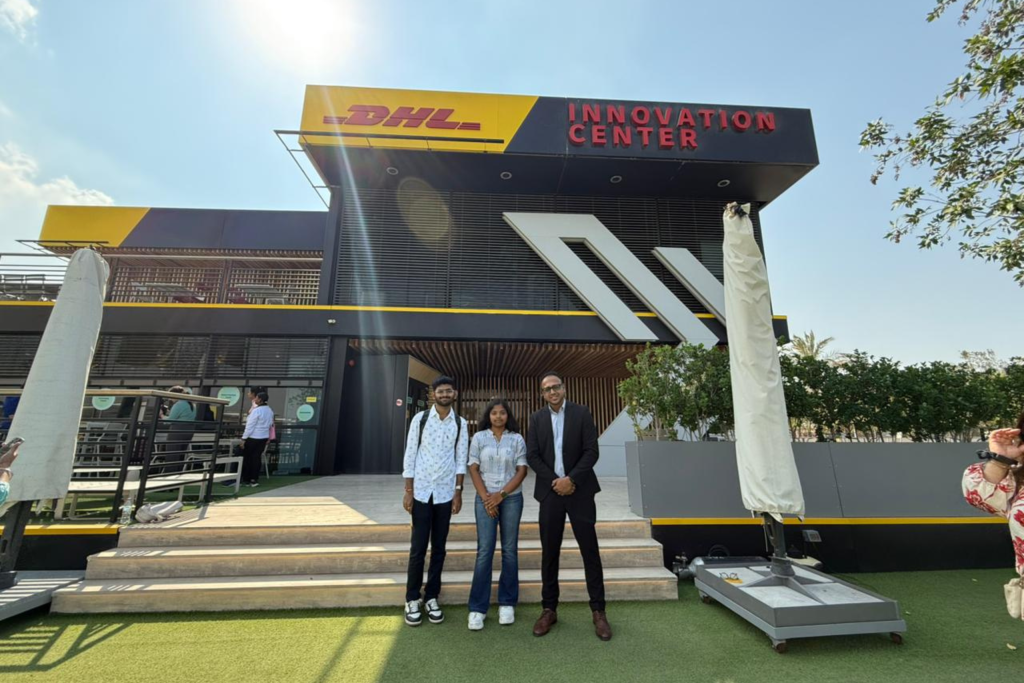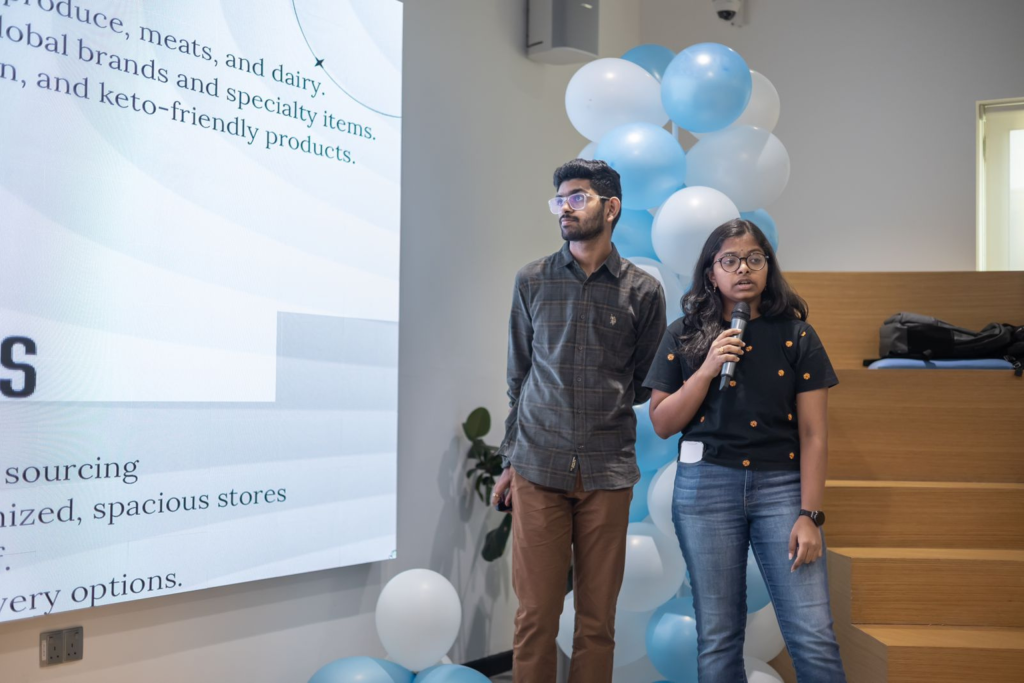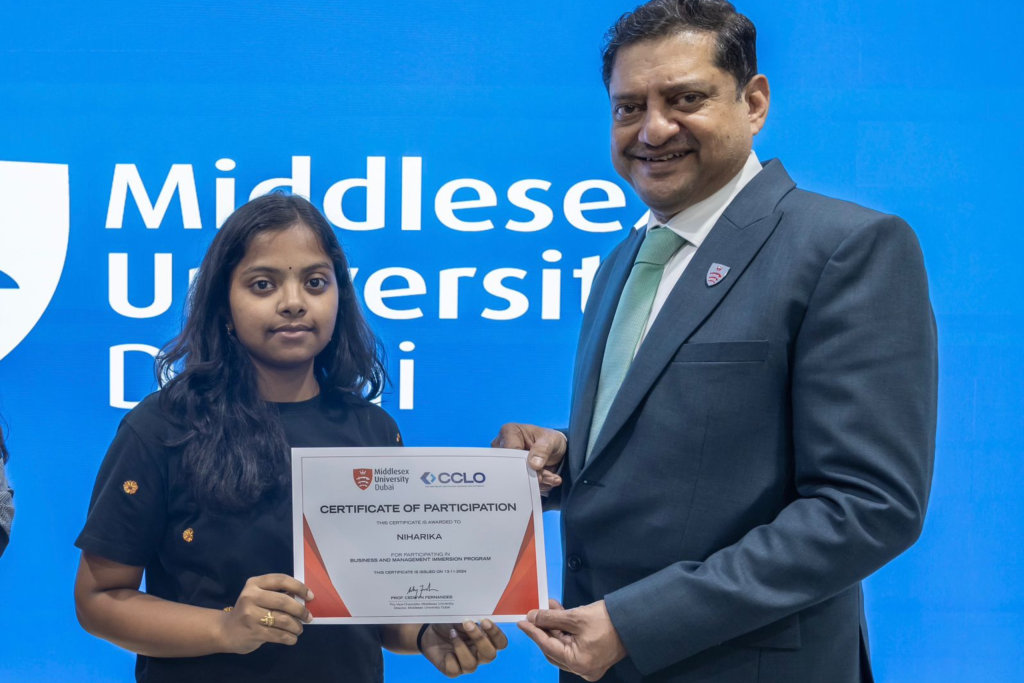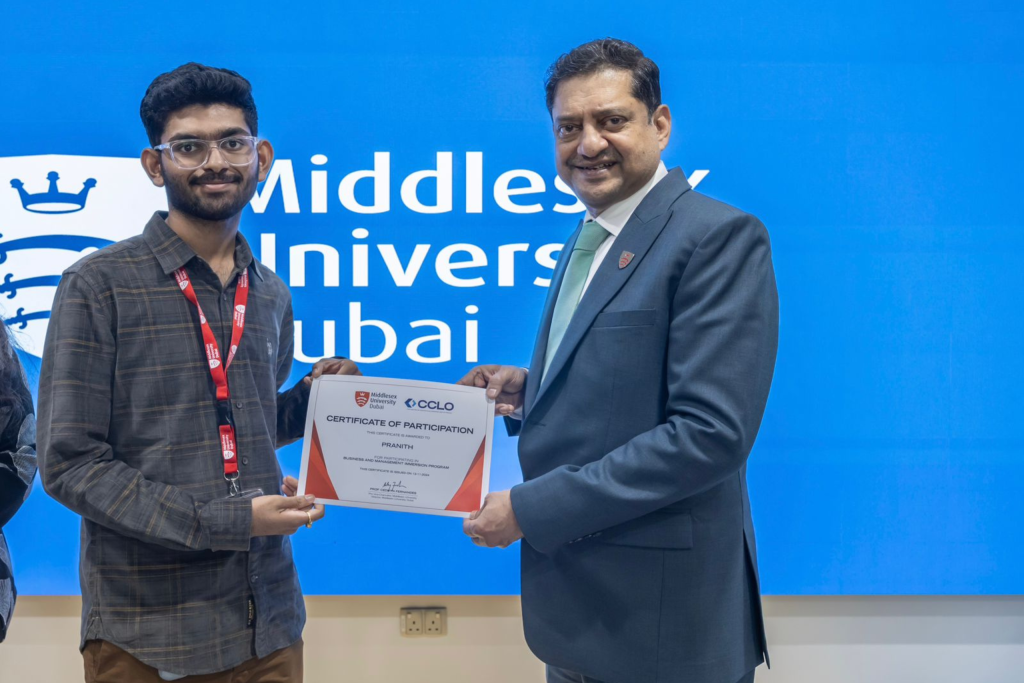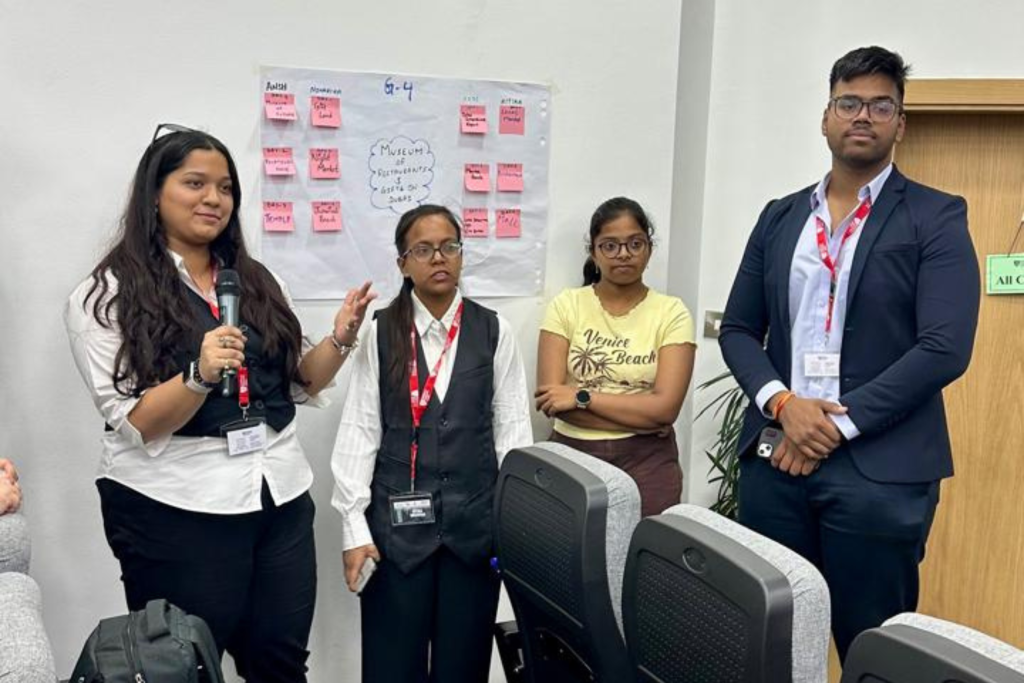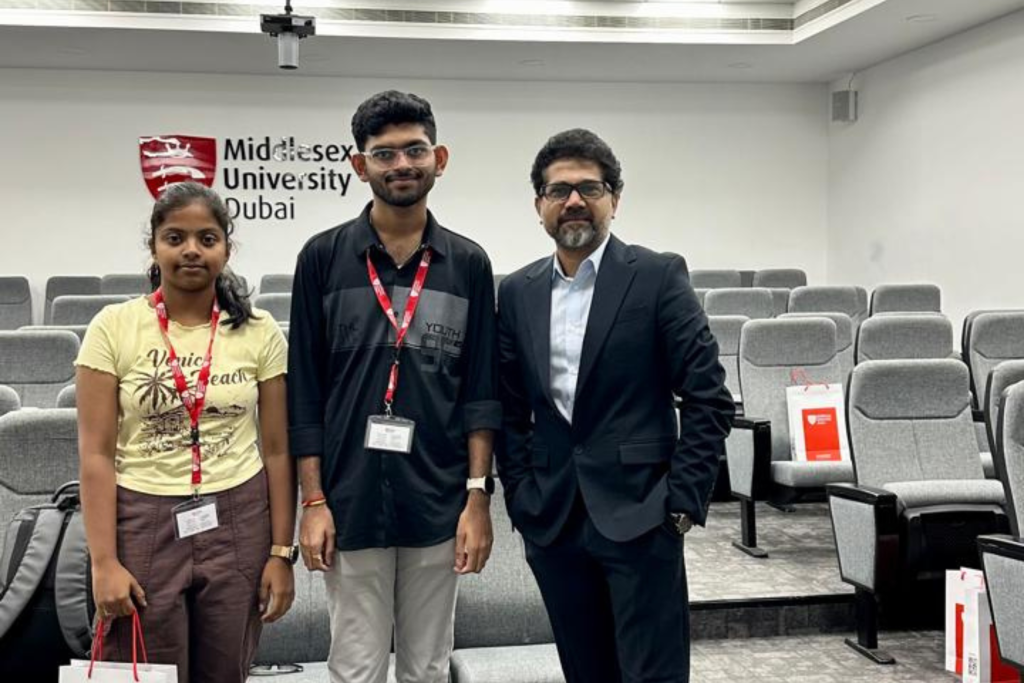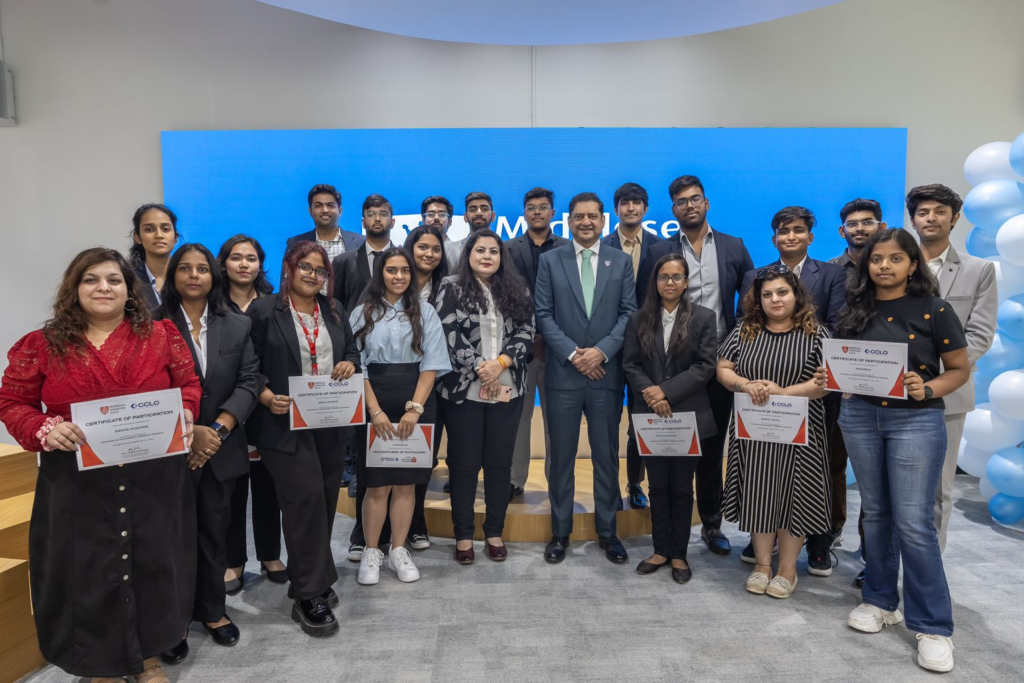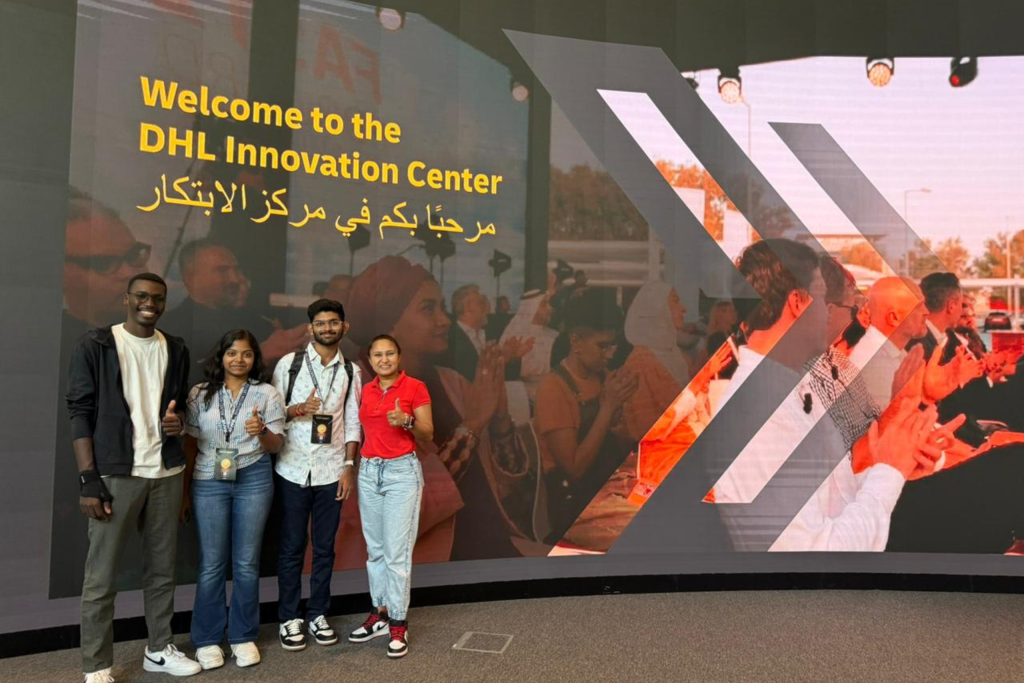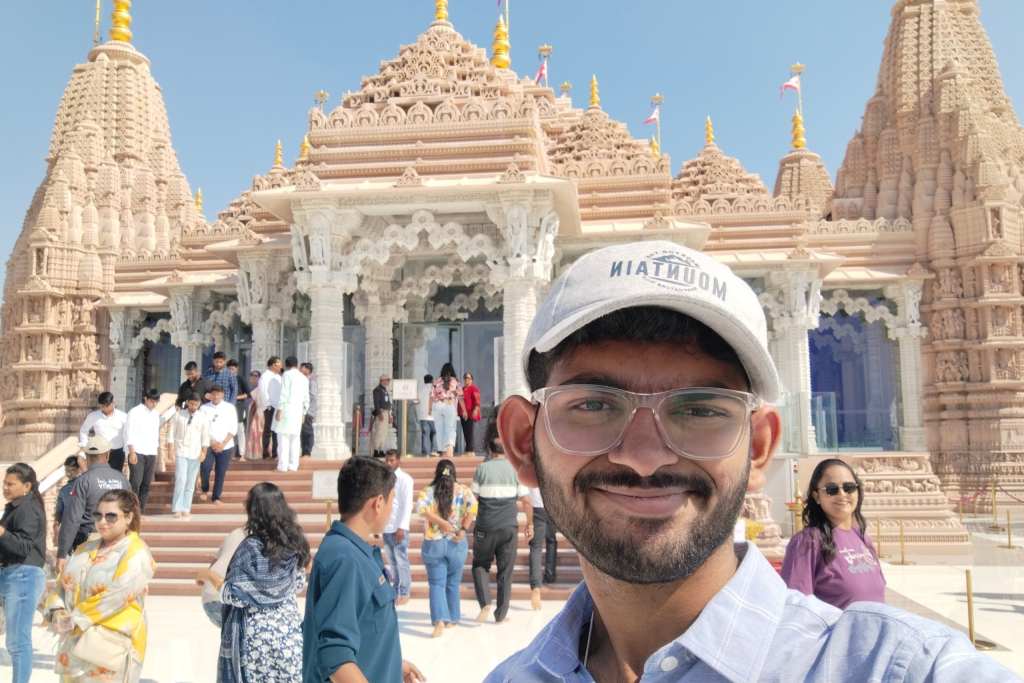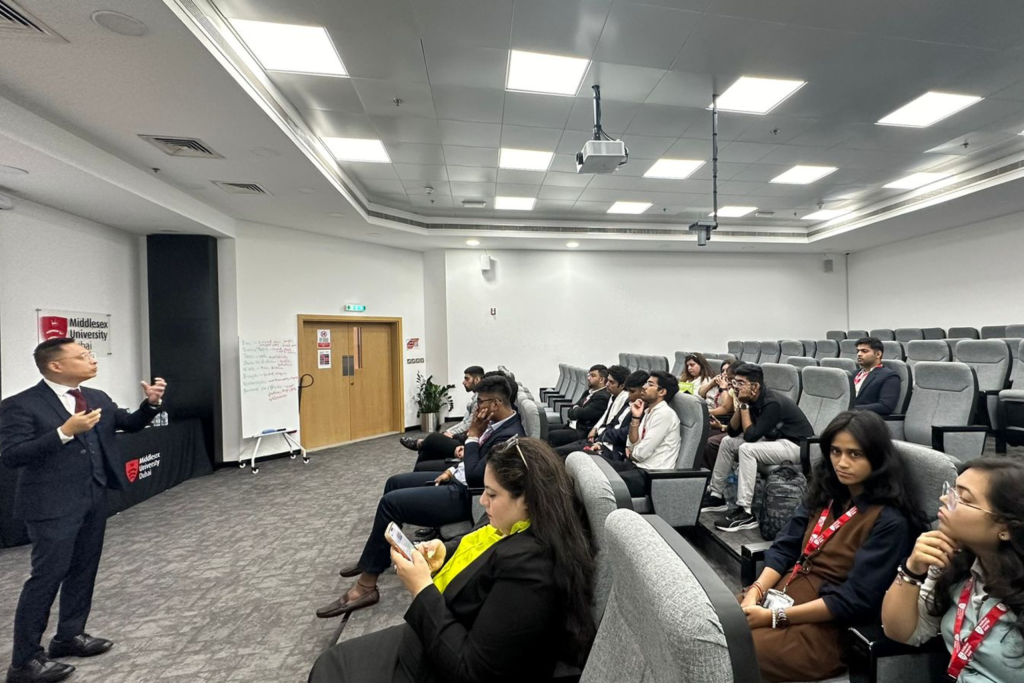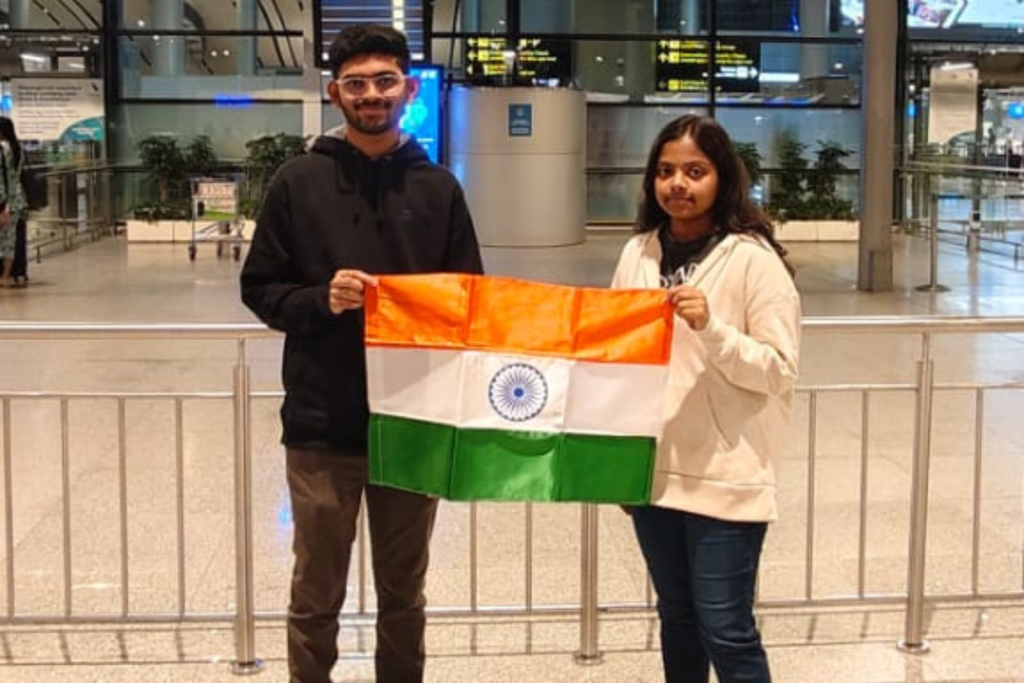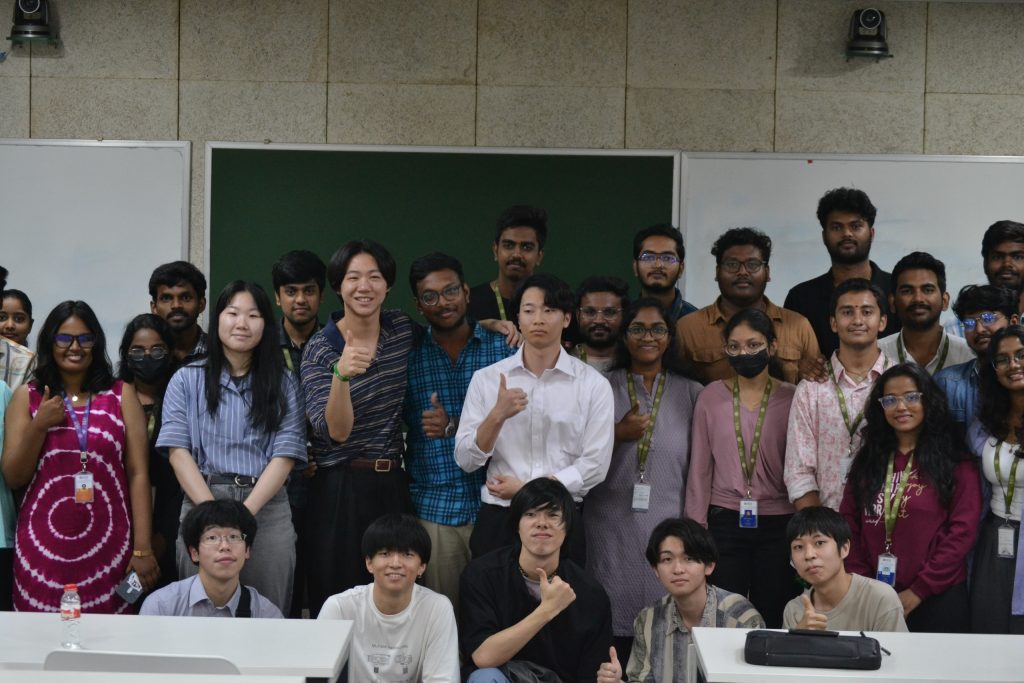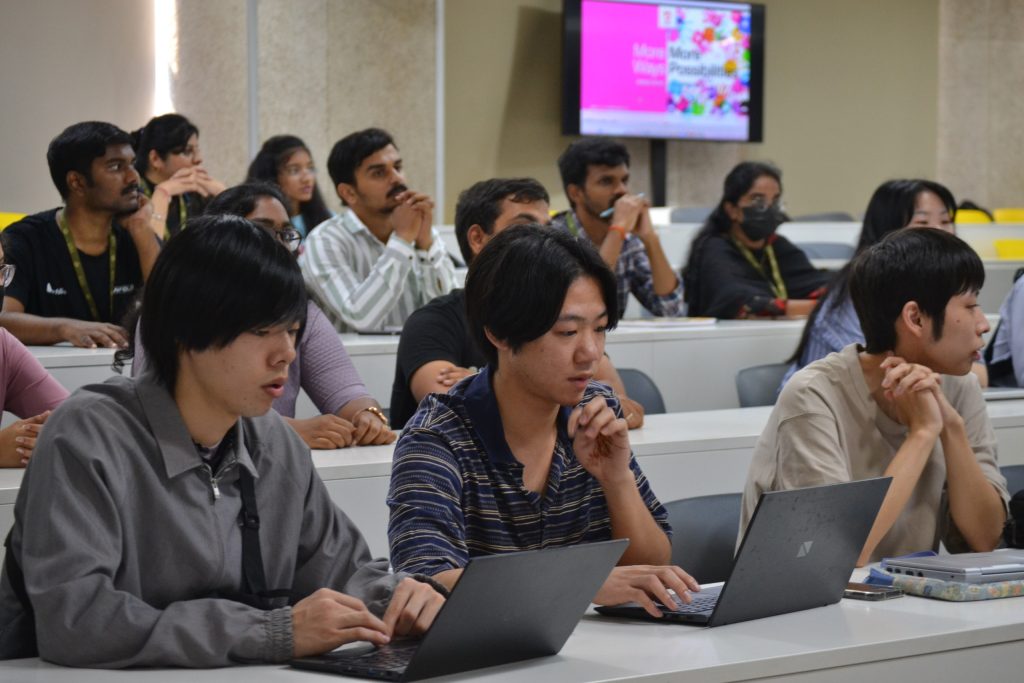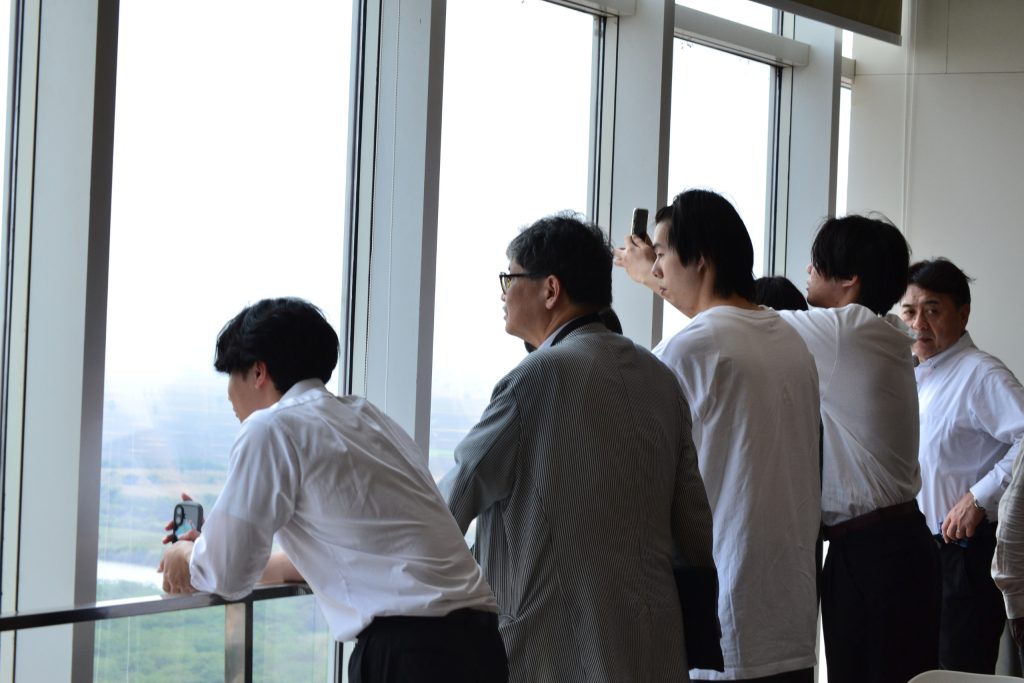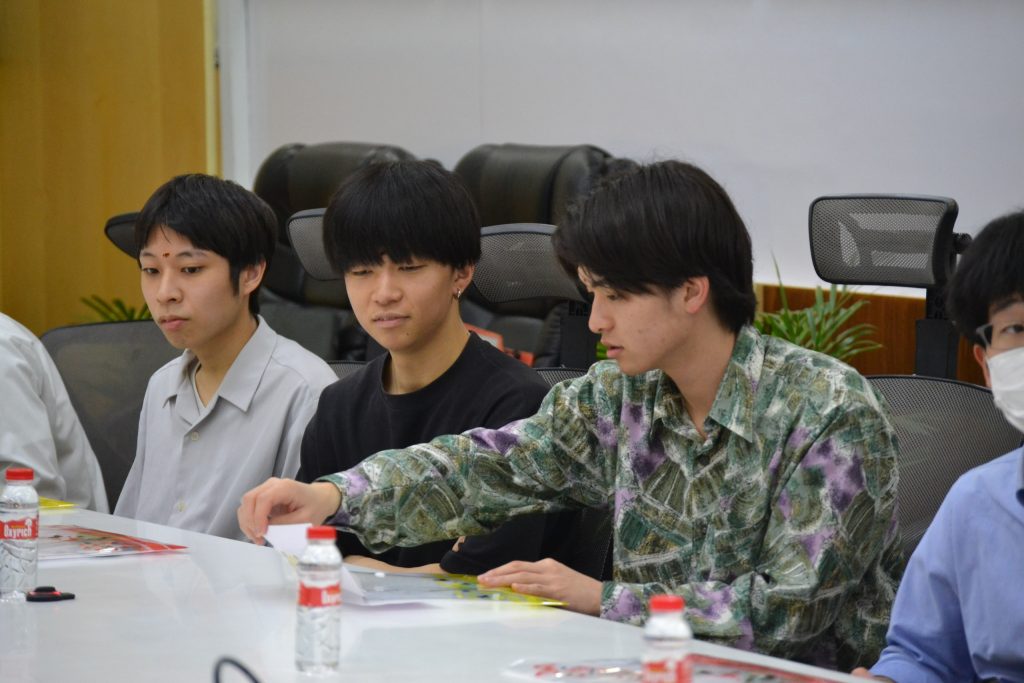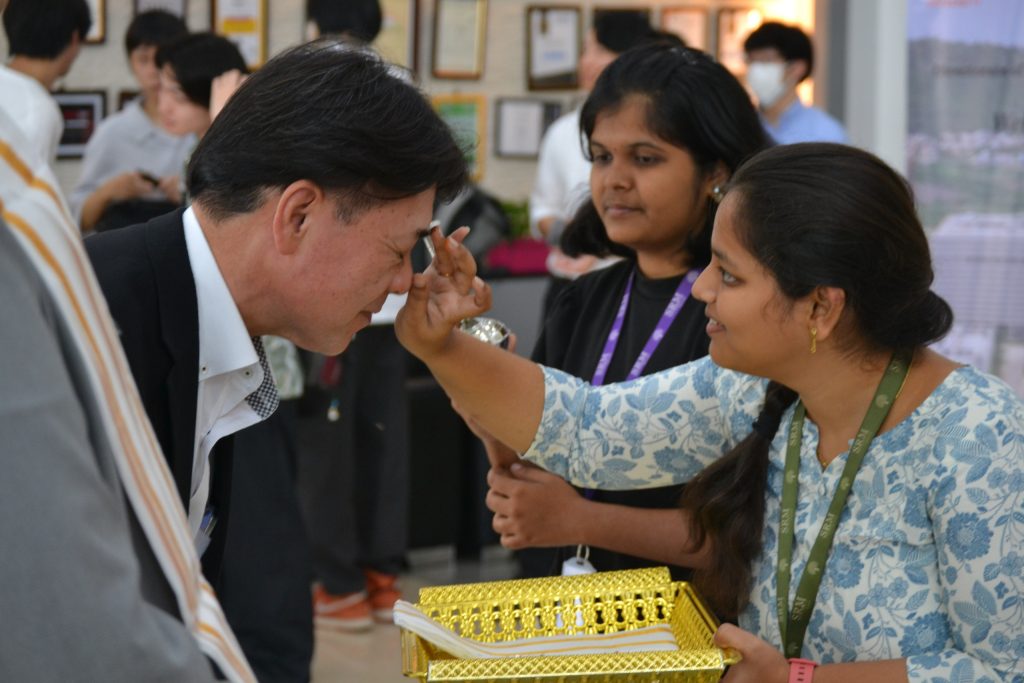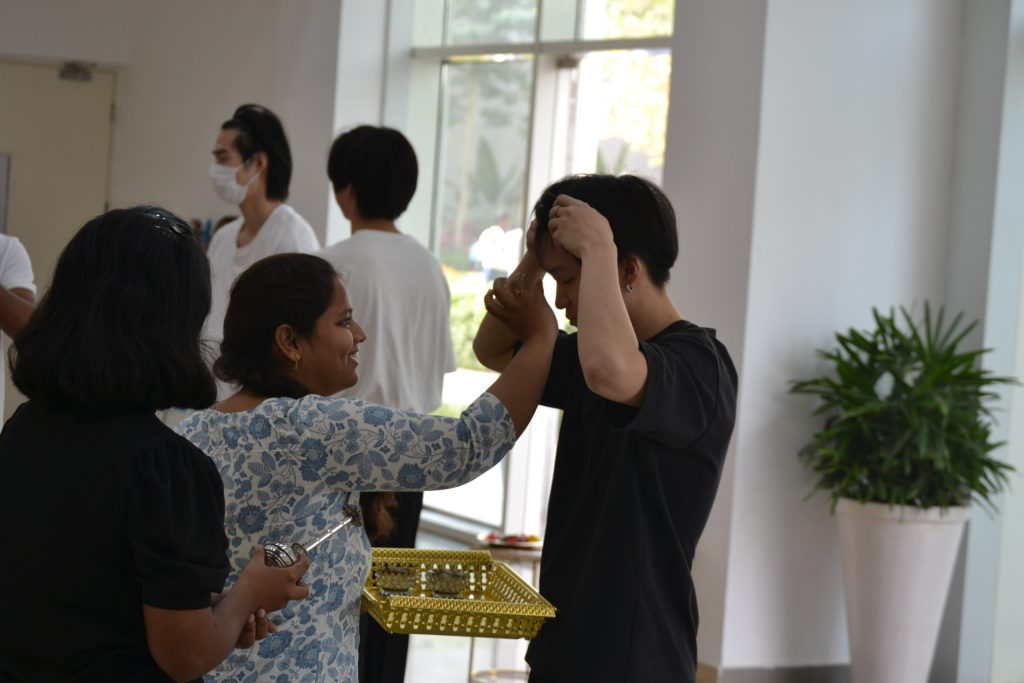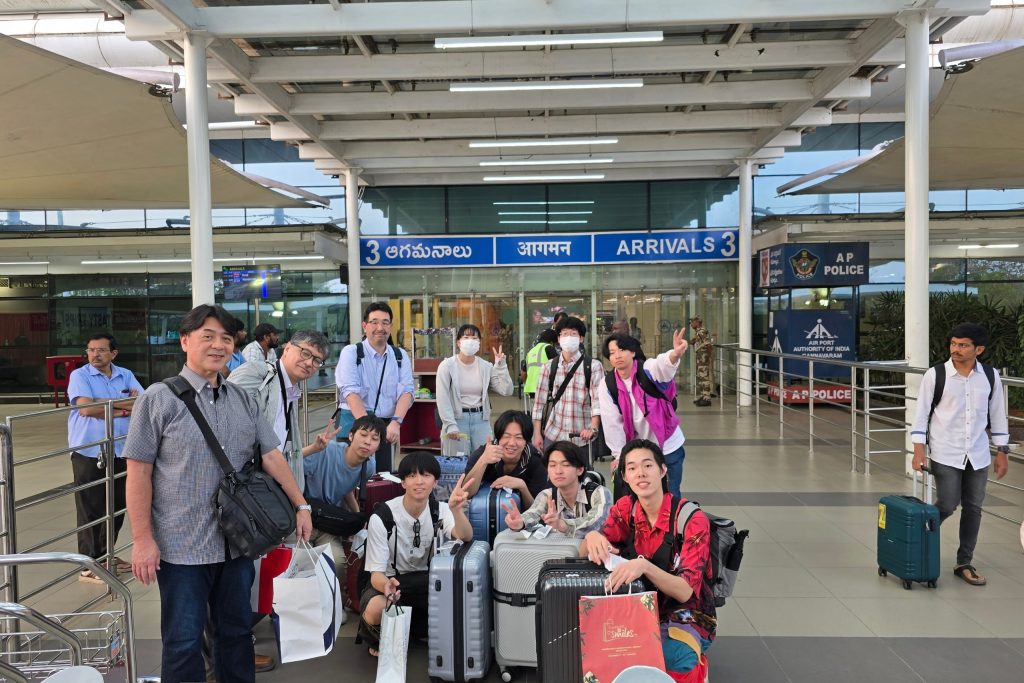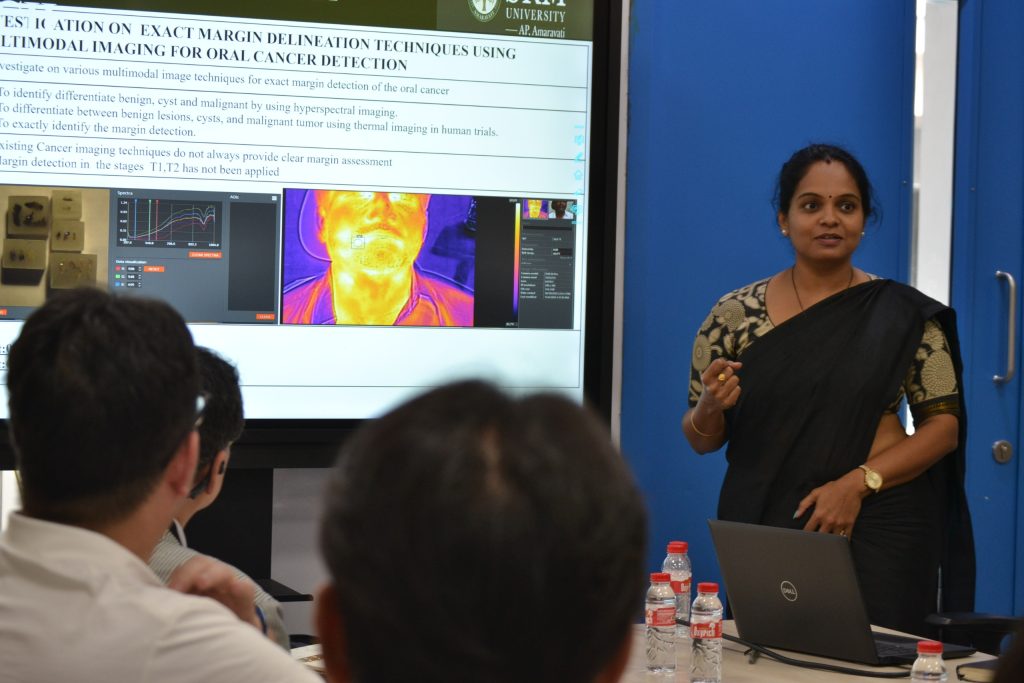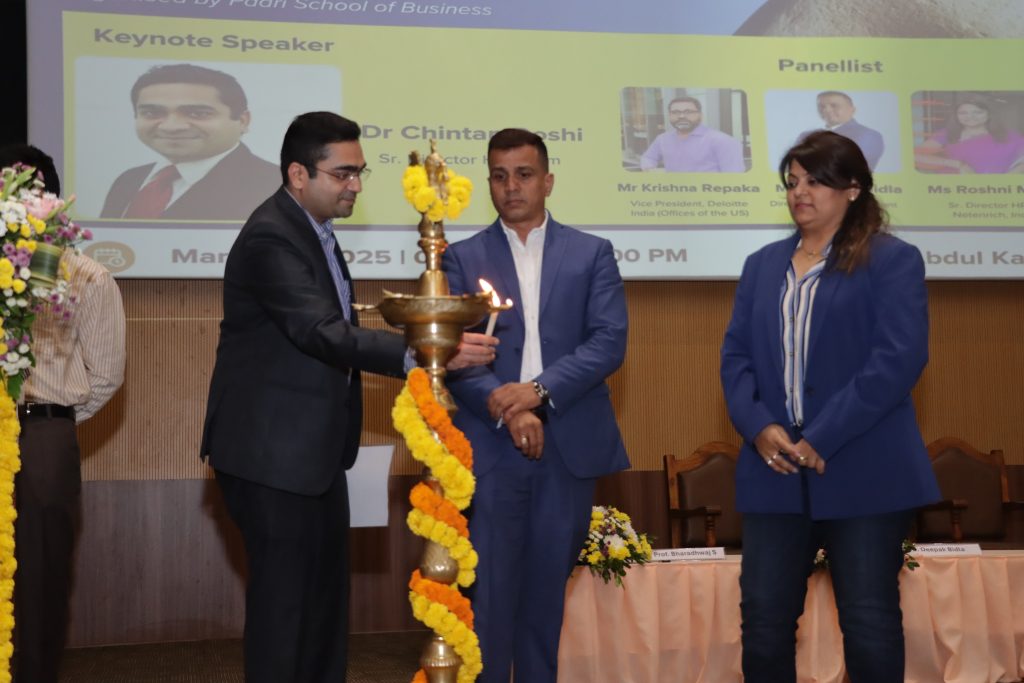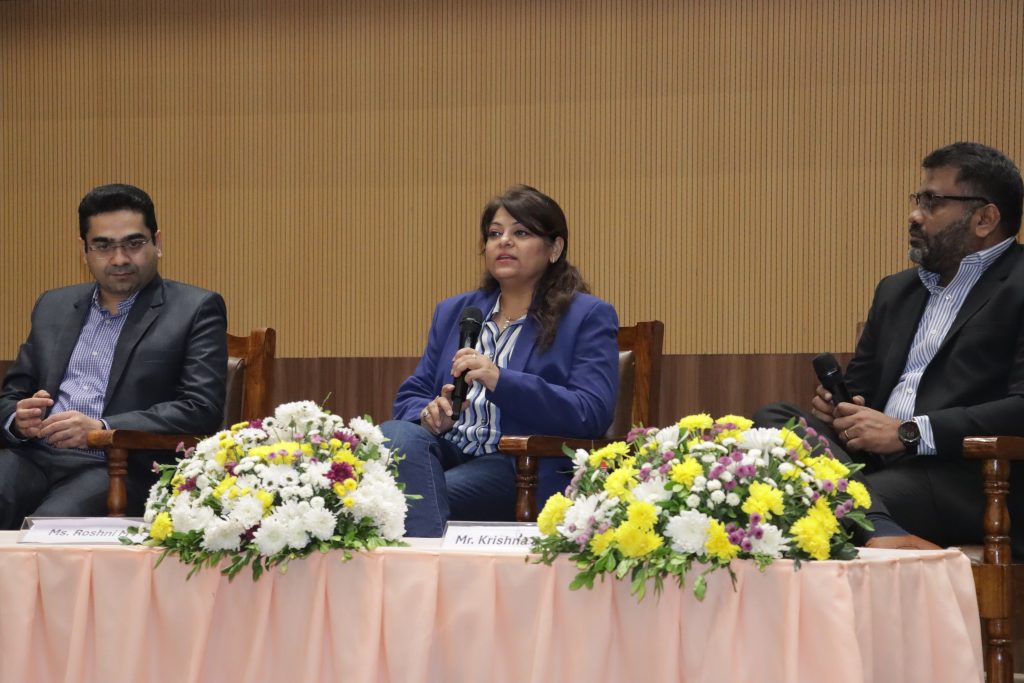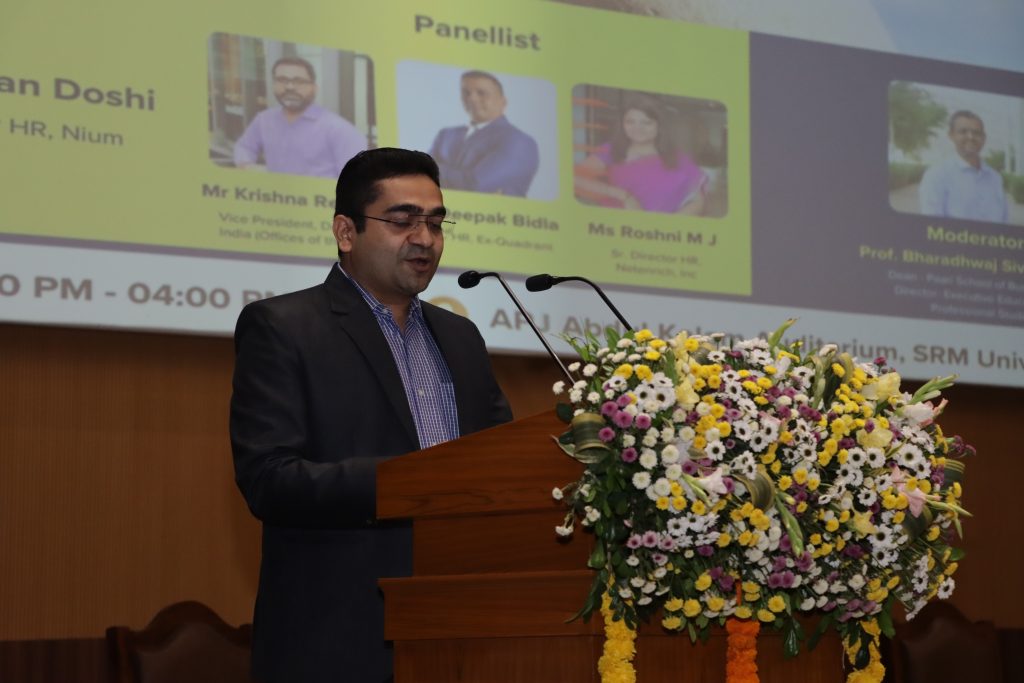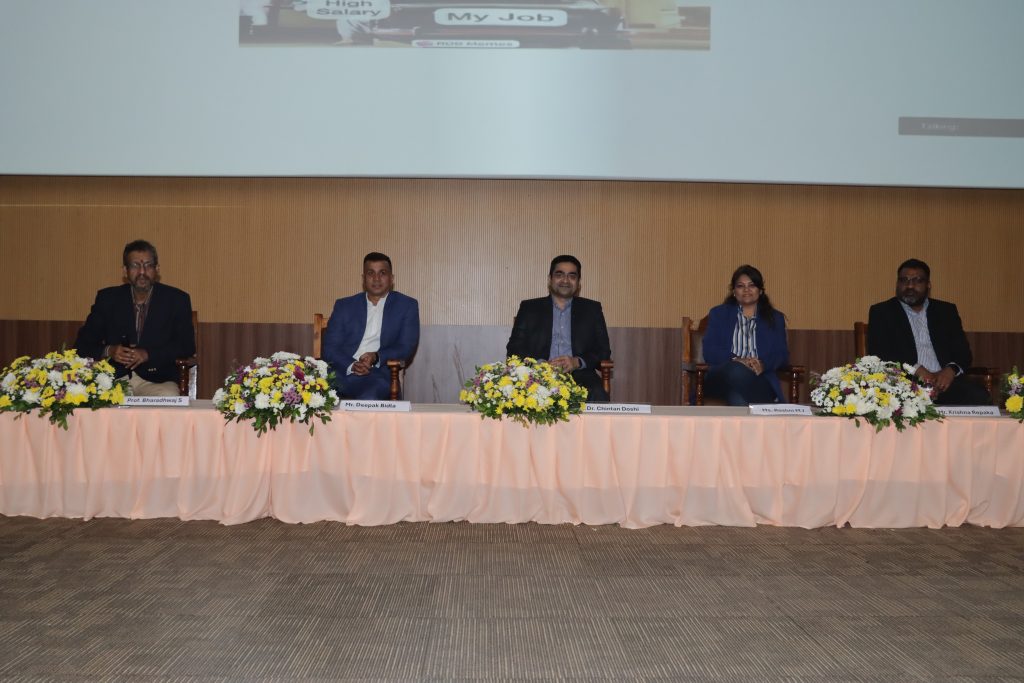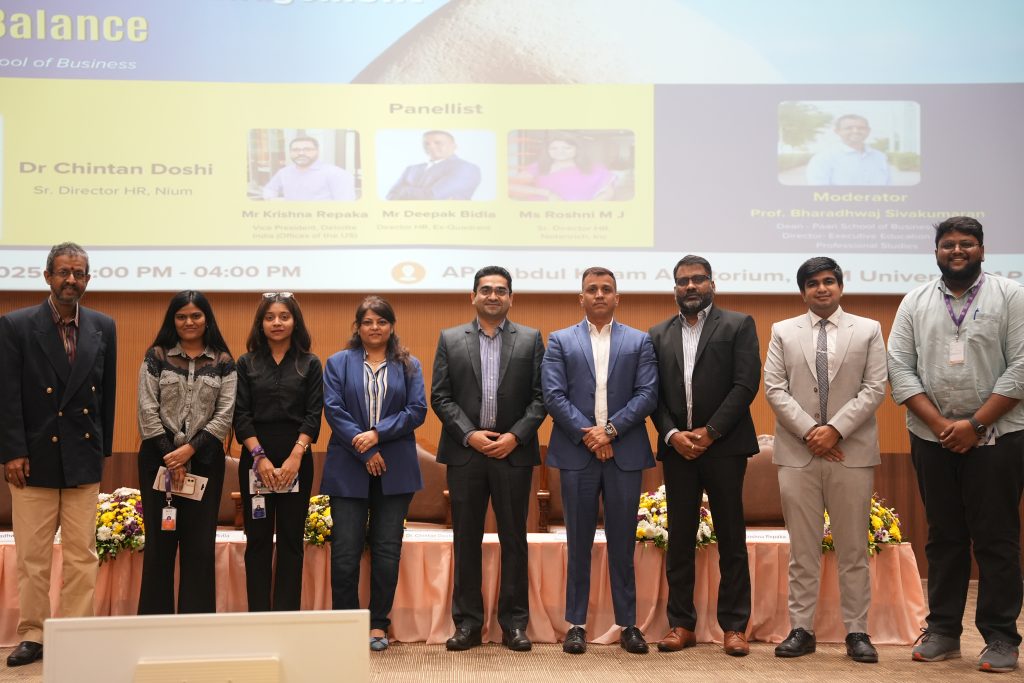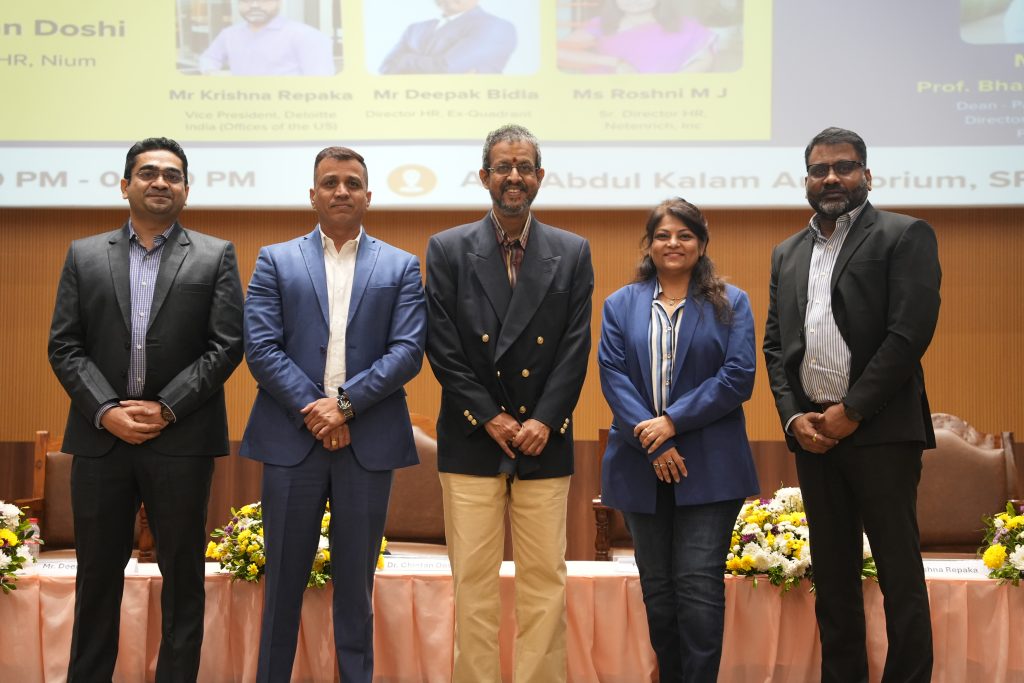All Management Events
- Expert Talk by Prof. Meenakshi Munshi March 21, 2025
The Department of Biological Sciences at SRM University-AP organised an Expert Talk on “Various Funding Opportunities for Departments, Scholars, Postdocs, and Faculty of Life Sciences”. The event featured Prof. Meenakshi Munshi, Former Adviser/Scientist-G and Head of HRD & Societal Program Division at the Department of Biotechnology, Government of India.
The session had a turnout of participants and faculty members from various departments. The event, organised under the guidance of Dr Anil K Suresh, aimed to provide comprehensive information about the diverse funding landscape available to support research and academic initiatives in the life sciences domain.
During her presentation, Prof. Munshi offered a detailed overview of numerous funding sources accessible to researchers at different career stages. She expertly navigated through the complexities of eligibility criteria and application procedures, empowering attendees with practical knowledge and to identify and pursue appropriate funding opportunities. Prof. Munshi stressed on the importance of developing well-crafted research proposals and realistic budgets that align with the priorities of funding agencies, significantly increasing the chances of securing financial support.
One of the highlights of the session was Prof. Munshi’s emphasis on the value of collaborative research networks. She explained how strategic partnerships can strengthen funding applications and expand the scope and impact of research projects. This perspective encouraged participants to think beyond individual pursuits and consider the benefits of interdisciplinary collaboration, a principle that aligns perfectly with SRM University-AP’s research philosophy.
The event fostered intellectual discussions among participants, creating an environment conducive to knowledge sharing and networking. Students and faculty alike engaged with Prof. Munshi, seeking clarification on specific aspects of the funding process and sharing their experiences and challenges.
The talk built confidence in the participants’ ability to navigate the funding landscape. Armed with practical strategies for identifying suitable funding sources, understanding application requirements, crafting compelling proposals, and building collaborative networks, attendees are now better positioned to advance their research endeavours.
Continue reading → - Dr Amit Chakraborty and Scholar Publish their Research in Nature Index Journal March 21, 2025
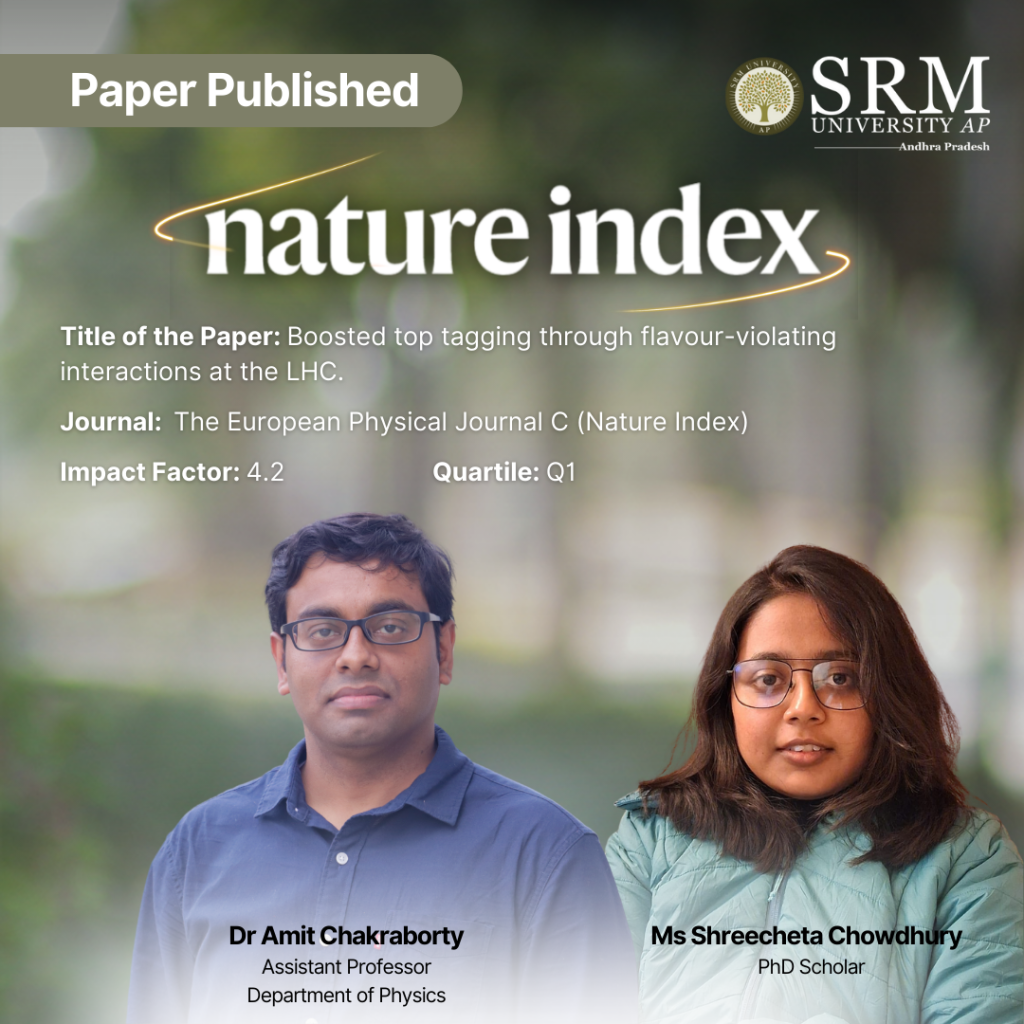
Dr Amit Chakraborty, Assistant Professor in the Department of Physics and Ms Shreecheta Chowdhury, PhD Scholar, have co-authored a research paper titled “Boosted top tagging through flavour-violating interactions at the LHC”, which has been published in the European Physical Journal C (Nature Index), Q1 Journal having an impact factor 4.2.
Their research focuses on identifying a rare process involving the top quark, one of the heaviest particles. In this rare decay, the top quark transforms into a charm quark and a Higgs boson, which then breaks down into two b quarks. The team uses the data collected at the Large Hadron Collider (LHC), the world’s largest particle smasher, and employs Machine Learning techniques to investigate the possibility of understanding these collision events and identifying signatures of physics Beyond the Standard Model.
Abstract
This paper describes a method for detecting a rare top quark decay into a charm quark and a Higgs boson (H), which decays further into b quarks, at the Large Hadron Collider (LHC), and introduces a tagging algorithm to identify boosted tops using large-R jets containing b- and c-tagged elements. We consider the associated production of the top quark with a W-boson and identify different observables to discriminate the signal from the Standard Model (SM) background events. Although our model with improved jet substructure methods outperforms existing approaches to tag such rare decay tops, the improvement in the New Physics reach in terms of t → cH branching ratio is marginal, even at the high luminosity run of LHC, compared to the existing limits from the LHC 13 TeV data. Additionally, the paper utilizes SHAP, a Game Theory-based method, to analyse the contribution of each observable to the classification of events, offering valuable insights into the classifier.
Future Research Plans
The team plans to explore Beyond Standard Model (BSM) physics through collider phenomenology. Leveraging the Higgs boson as a portal, they aim to investigate its potential role in dark matter interactions, neutrino mass generation, and possibly being part of a larger scalar sector. Additionally, Dr Chakraborty will delve into ultra-light particle searches and develop novel jet physics techniques using advanced Machine Learning (ML) algorithms for particle identification and classification. A crucial aspect of his work will be creating testable search strategies, ensuring direct comparison with experimental data from current and future colliders.
Continue reading → - SRM University-AP Hosts International Conference on Exploring the South Asian Political Perspective March 21, 2025
The Hindu
Continue reading →
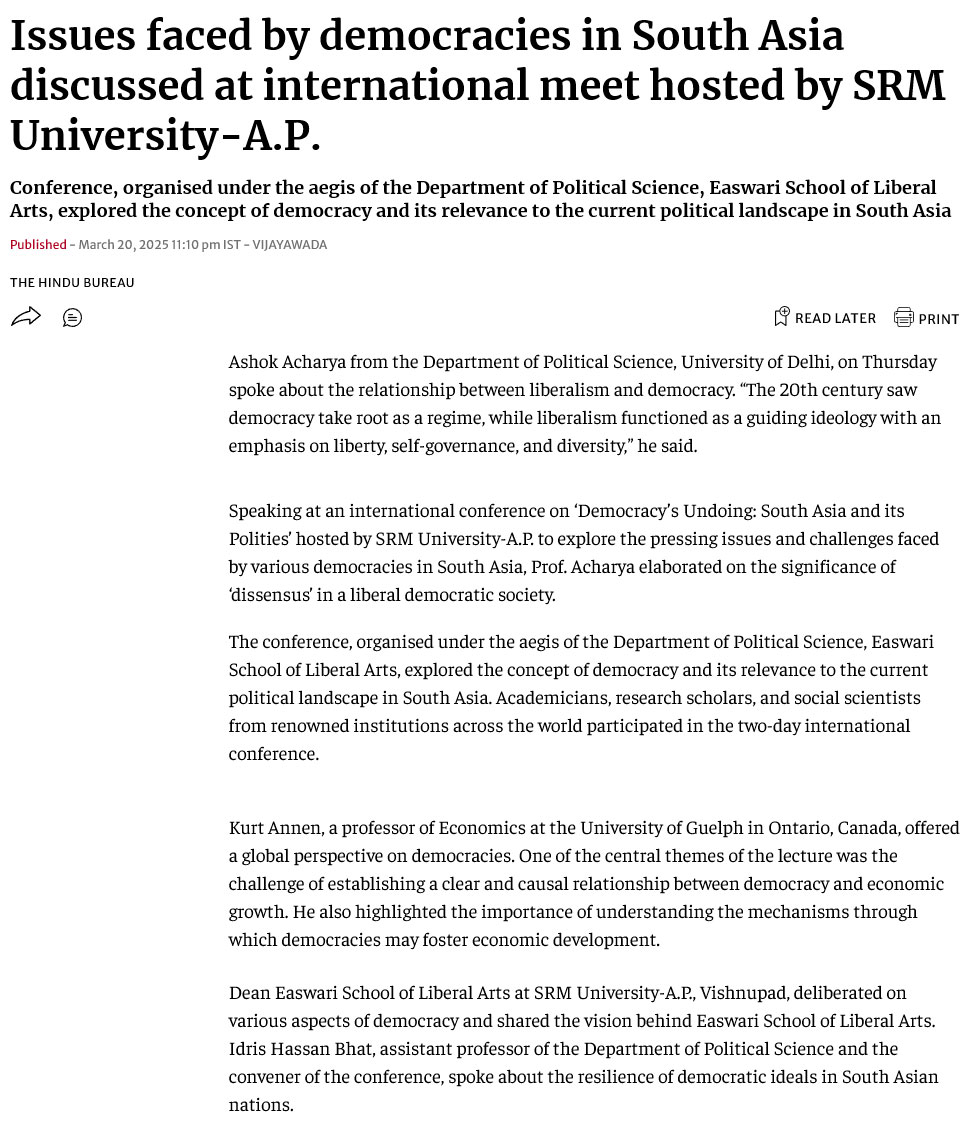
The Hans India
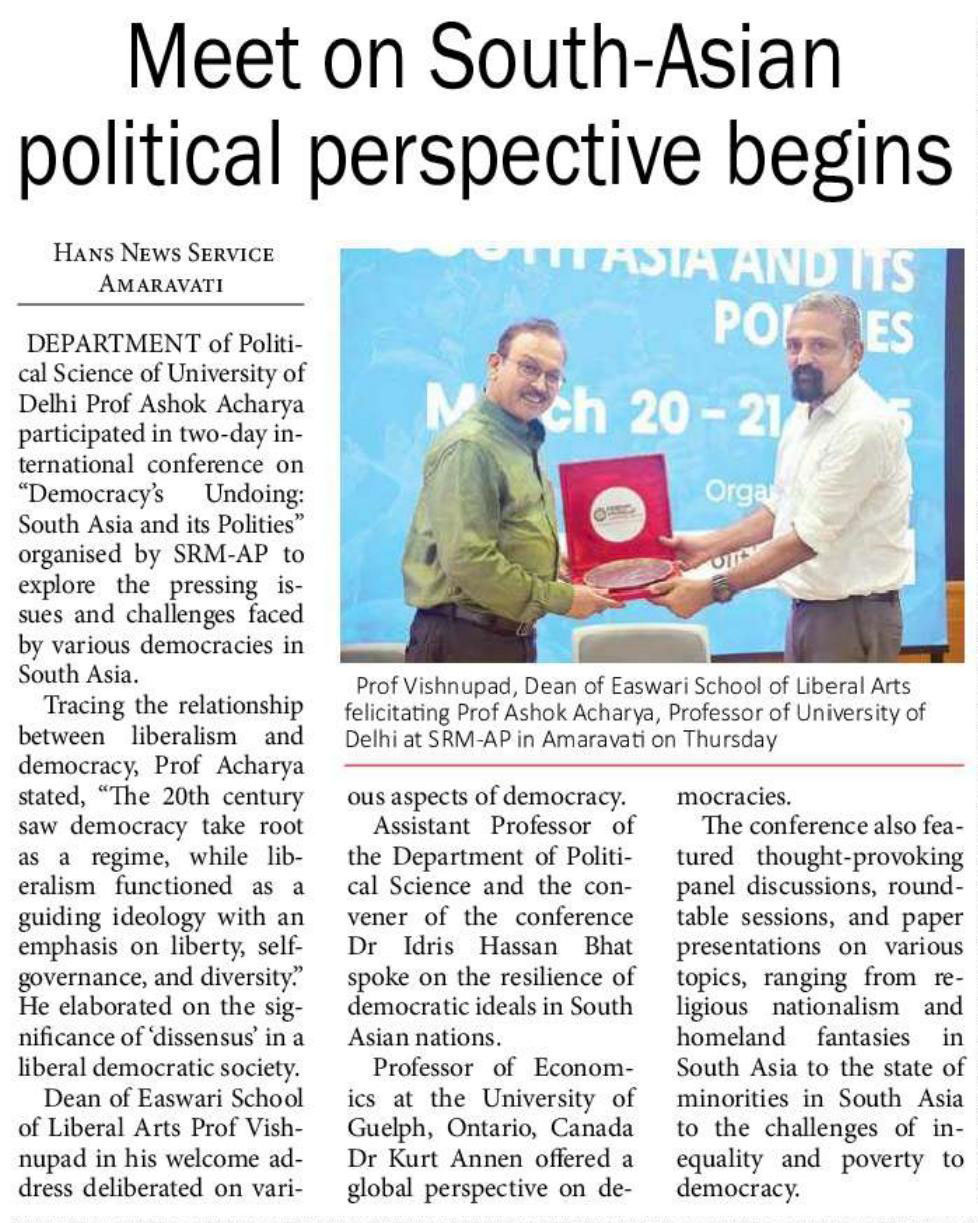
The Pioneer
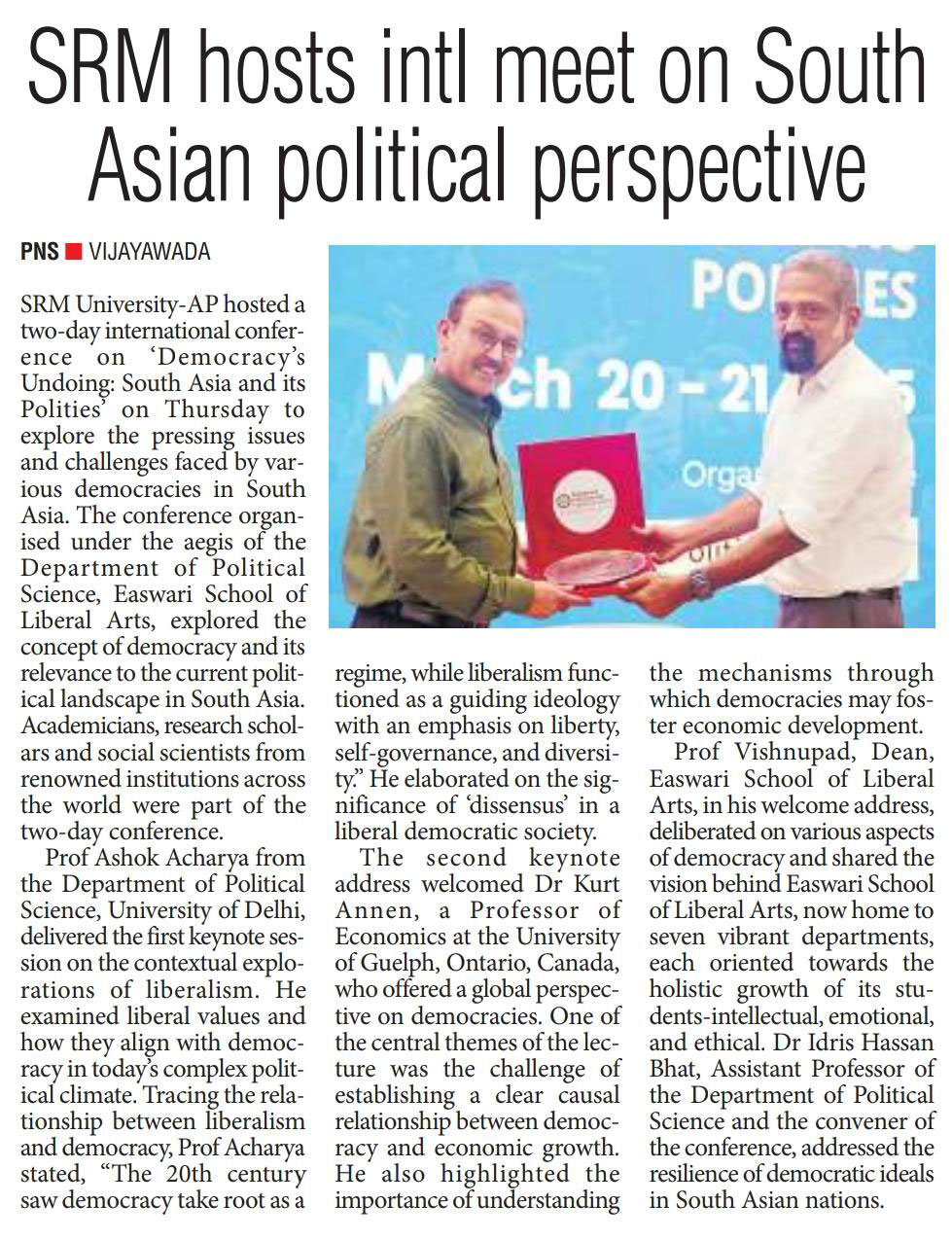
The South India Times
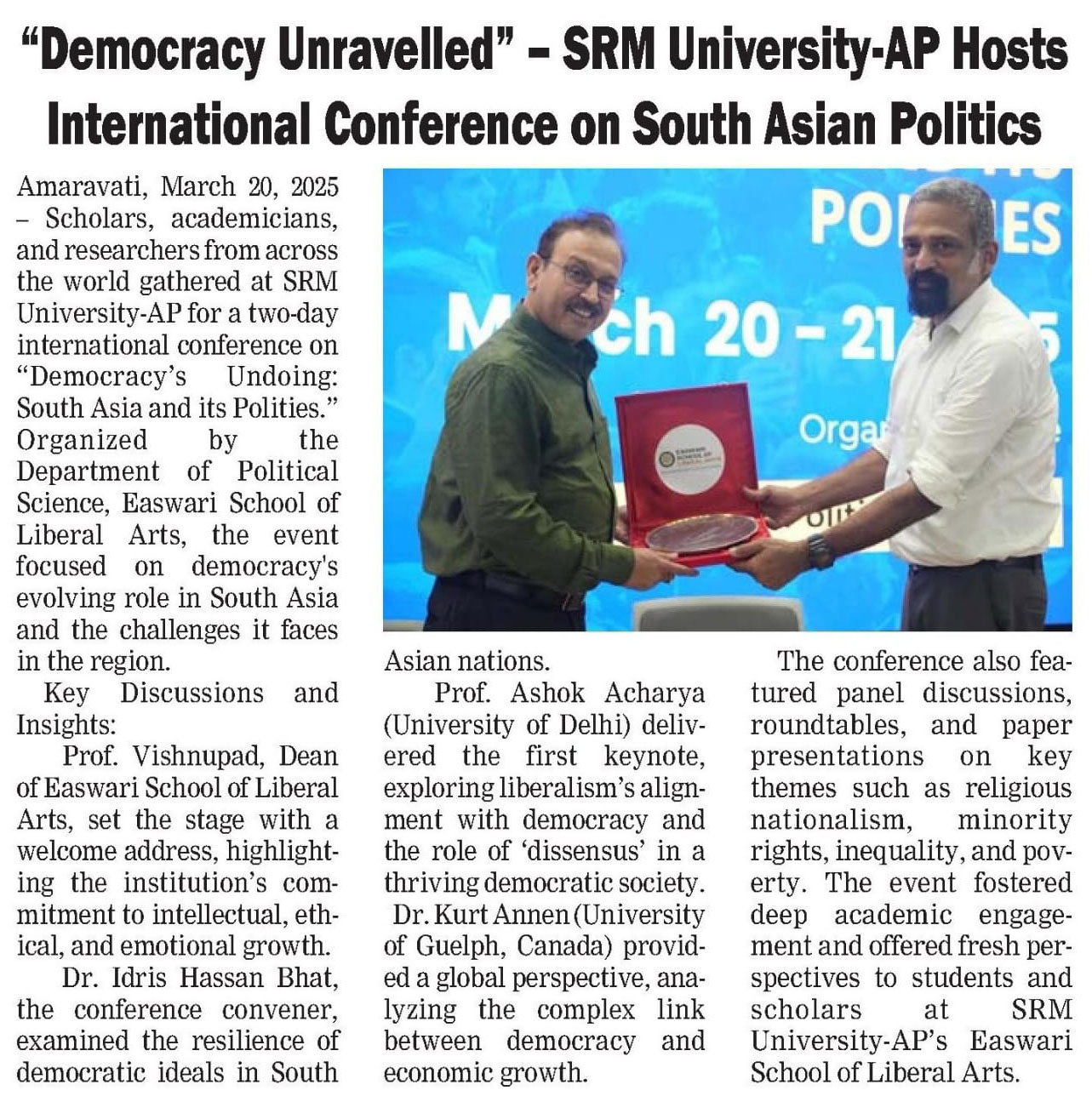
- Film Gala 2025: Exploring Novel Media of Storytelling March 20, 2025
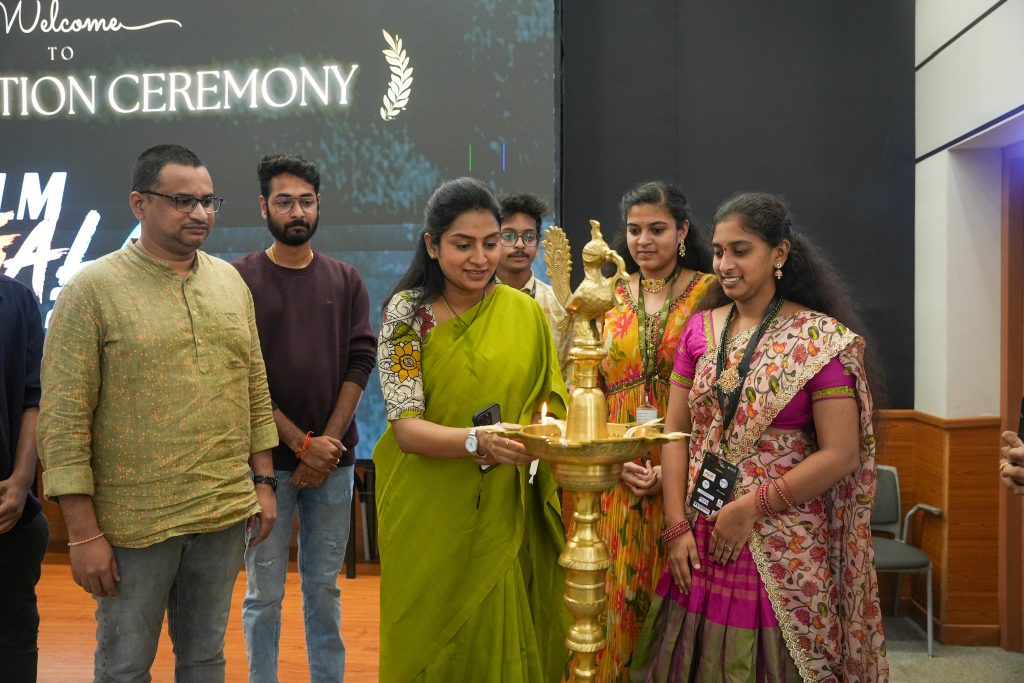
The Film Gala 2025, organised by the CineMates Club of SRM AP, was inaugurated with a formal ceremony that marked a prestigious two-day celebration dedicated to the art of cinema, narrative excellence, and creative expression. This distinguished event established a professional forum for filmmakers, artists, and cinema enthusiasts from across the nation to participate in intellectual discourse, competitive showcases, and cultural exhibitions.
The ceremony was honoured by the presence of Mrs Tejaswi Podapati Macharapu, Chairperson of the AP State Creativity and Culture Commission, Government of Andhra Pradesh, who served as the Chief Guest. She was accompanied by Mr Sujith Kalluri, Chief Club Advisors, distinguished faculty members, Founders and Alumni of CineMates, and official representatives from the organising committee.
The keynote address by Chief Guest Mrs Tejaswi Podapati Macharapu constituted the ceremony’s centrepiece. She delivered a comprehensive discourse on cinema’s transformative role in contemporary society. Drawing from her academic experiences, she emphasised the importance of integrating creative pursuits with scholastic endeavours. Mrs Tejaswi noted that India maintains its position as the world’s foremost film-producing nation, with an annual output exceeding 2,000 cinematic productions, thereby presenting substantial opportunities for aspiring filmmakers. She further emphasised that students from diverse academic disciplines, including engineering, possess the analytical acumen and creative capabilities necessary for success in the film industry.
To reinforce her message, Mrs Tejaswi referenced distinguished individuals from various professional domains, including politics, athletics, and the arts, underscoring how perseverance and passion are fundamental elements of professional achievement. She concluded her address by expressing admiration for the Film Gala’s established legacy and commended SRM AP for its institutional commitment to advancing artistic initiatives.
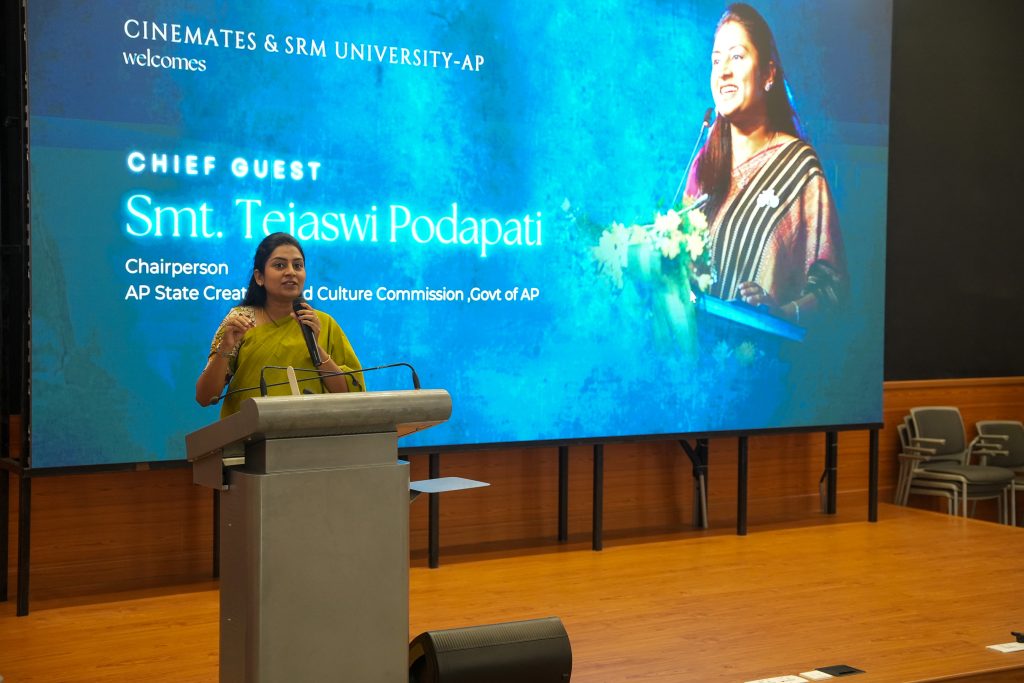
The ceremony featured classical dance performances by Ms. Preeti and Ms. Deepthi, who demonstrated the artistic interpretation of narrative through choreographed movement, exemplifying the intersection of traditional cultural expression and contemporary storytelling techniques.
A significant component of the inauguration was the formal announcement of the 24-Hour Filmmaking and Editing Challenges. The Visual Chase competition specified that participants create a two-minute video exploring the theme “Nature Speaks to Me,” while the Classic Cut competition challenged contestants to produce a trailer for the film ‘Kalki 2898 A.D.,’ with a maximum duration of 2 minutes and 30 seconds.
The inaugural ceremony concluded with a comprehensive presentation of the day’s scheduled activities, including curated short film screenings, a poetry recitation session, and an evening film presentation. The enthusiastic participation from attendees signified the successful launch of Film Gala 2025, establishing an auspicious foundation for what promised to be an intellectually stimulating and culturally enriching festival.
The event received generous sponsorship from esteemed organisations including Sastri Balm, AWEC Consultancy, IVY Overseas, ATHER, Vastrakala Shopping Mall, Picxy, Harivillu Promoters and Developers Pvt. Ltd., V1 Overseas Careers Pvt. Ltd., and GTR Solar Power. Their valued support facilitated the creation of a platform where emerging talents could demonstrate their artistic vision and technical expertise.
Continue reading → - Maha Kumbh Mela: Miracle of Management March 20, 2025
- Fifty Years of ‘Towards Equality’: Why Indian Women Still Fear Public Spaces? March 20, 2025
- AIT Thailand Global Immersion Programme March 17, 2025
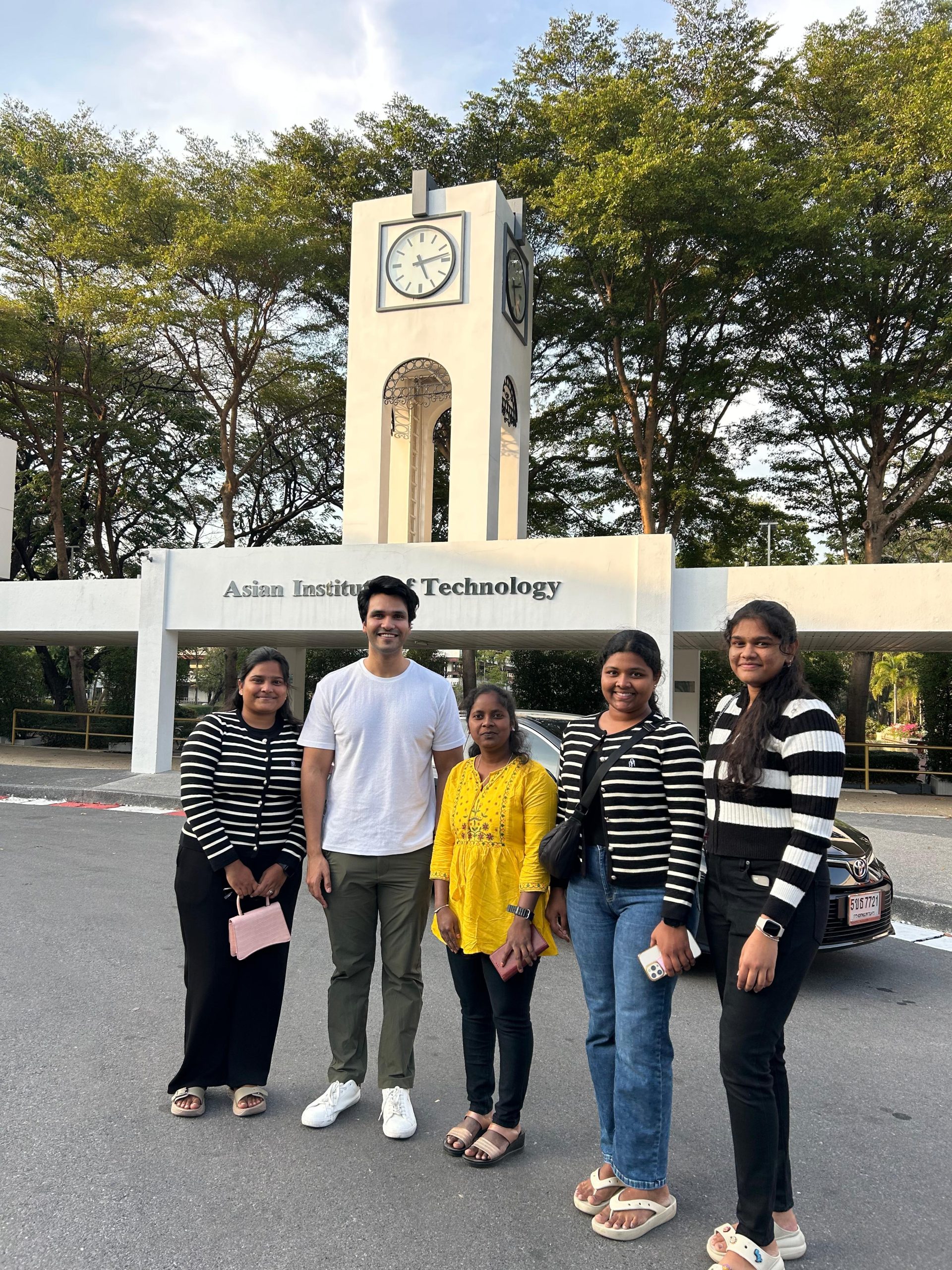 The International AI Boot Camp, organised by AI Brain Lab in collaboration with AIT, took place in Thailand from January 6 to January 12, 2025. This immersive programme offered a unique blend of AI exploration and cultural exposure, allowing participants to engage with cutting-edge AI applications while experiencing Thailand’s rich heritage. Three students from the Department of Computer Science and Engineering (CSE) participated in the AIT Thailand Global Immersion Programme, gaining valuable insights and hands-on experience.
The International AI Boot Camp, organised by AI Brain Lab in collaboration with AIT, took place in Thailand from January 6 to January 12, 2025. This immersive programme offered a unique blend of AI exploration and cultural exposure, allowing participants to engage with cutting-edge AI applications while experiencing Thailand’s rich heritage. Three students from the Department of Computer Science and Engineering (CSE) participated in the AIT Thailand Global Immersion Programme, gaining valuable insights and hands-on experience.Over the course of a week the boot camp offered a strong methodological foundation, fostering both technical expertise and personal growth. Beyond AI, it provided valuable exposure to international collaboration, cultural immersion, innovation, and personal development, making it a truly transformative experience.
The International AI Boot Camp was thoughtfully designed to bridge the gap between theoretical AI concepts and their practical applications across various industries. Each day was packed with insightful presentations from industry experts and hands-on laboratory sessions, where participants applied cutting-edge AI methodologies to solve real-world challenges.
The journey began with an introduction and orientation at AIT. Stepping onto the beautiful, well-equipped AIT campus, surrounded by lush greenery and a diverse, multicultural community, was truly inspiring. The environment fostered collaborative learning and innovation, setting the perfect stage for the programme.
Additionally, a brief introduction to Thai culture enriched the experience, offering a glimpse into Thailand’s warm hospitality and rich traditions, further enhancing the immersion.
Key Leanings and Sessions: The programme focused on AI applications across multiple industries, including recruitment, insurance, ESG analytics, and healthcare. Each topic was introduced through theoretical discussions, followed by hands-on practical demonstrations, providing a solid foundation in the transformative potential of AI.
1. AI in Recruitment – The AI Interviewer – The session began with an exploration of how AI is revolutionising the interview process, making it fully automated and enhancing candidate evaluation through AI-driven analysis.
The practical session saw the development of a Python-based endpoint to manage interview data, incorporating voice-to-text conversion using libraries like Speech Recognition. This exercise highlighted how AI-powered hiring solutions improve accuracy and efficiency, increasing the likelihood of selecting the right candidates.
2. AI in Insurance – Intelligent CRM Solutions: Using Lang Chain, the role of AI-driven Customer Relationship Management (CRM) in the insurance industry, including prompt engineering and automation tools was explored.
During the hands-on session, designed a conversation flow and integrated claims detection algorithms, gaining valuable insights into how AI enhances customer experience and improves operational efficiency within the insurance sector.
3. ESG Studio – AI for Sustainability – This session examined the integration of Environmental, Social, and Governance (ESG) principles within businesses, with a specific focus on Thailand’s sustainability landscape.
The practical component involved building a dashboard with sample ESG data and implementing a Retrieval-Augmented Generation (RAG) algorithm using a vector database. This exercise demonstrated how AI can effectively support data-driven decision-making in sustainability and corporate governance.
4. AI in Healthcare – Ethical and Practical Innovations: The final technical session explored the ethical considerations and practical applications of AI in healthcare. Beginning with an analysis of key challenges in the sector, the session progressed to showcasing cutting-edge AI-driven innovations aimed at enhancing patient care and medical efficiency.
During the practical activity voice-based mood detection model was implemented, deepening the understanding of AI’s transformative role in mental health and diagnostics.
Cultural and Personal Experiences – Beyond academics, the boot camp provided an enriching cultural immersion. The AIT campus, with its manicured greenery, world-class facilities, and inspiring atmosphere, fostered both learning and self-reflection.
A major highlight of the programme was the Bangkok city tour, where magnificent temples, bustling shopping malls, and creative makeshift markets offering diverse products, from local delicacies to traditional crafts were explored. The seamless fusion of Thailand’s ancient heritage and modern urban landscape mirrored the essence of the boot camp—innovation built on strong foundational knowledge.
The International AI Boot Camp was a remarkable learning experience that seamlessly combined academic rigour with global exposure. This programme equipped the participants with invaluable knowledge and skills that will undoubtedly contribute to my future academic pursuits and career in artificial intelligence.
Continue reading → - Global Immersion Programme at Middlesex University, Dubai March 17, 2025
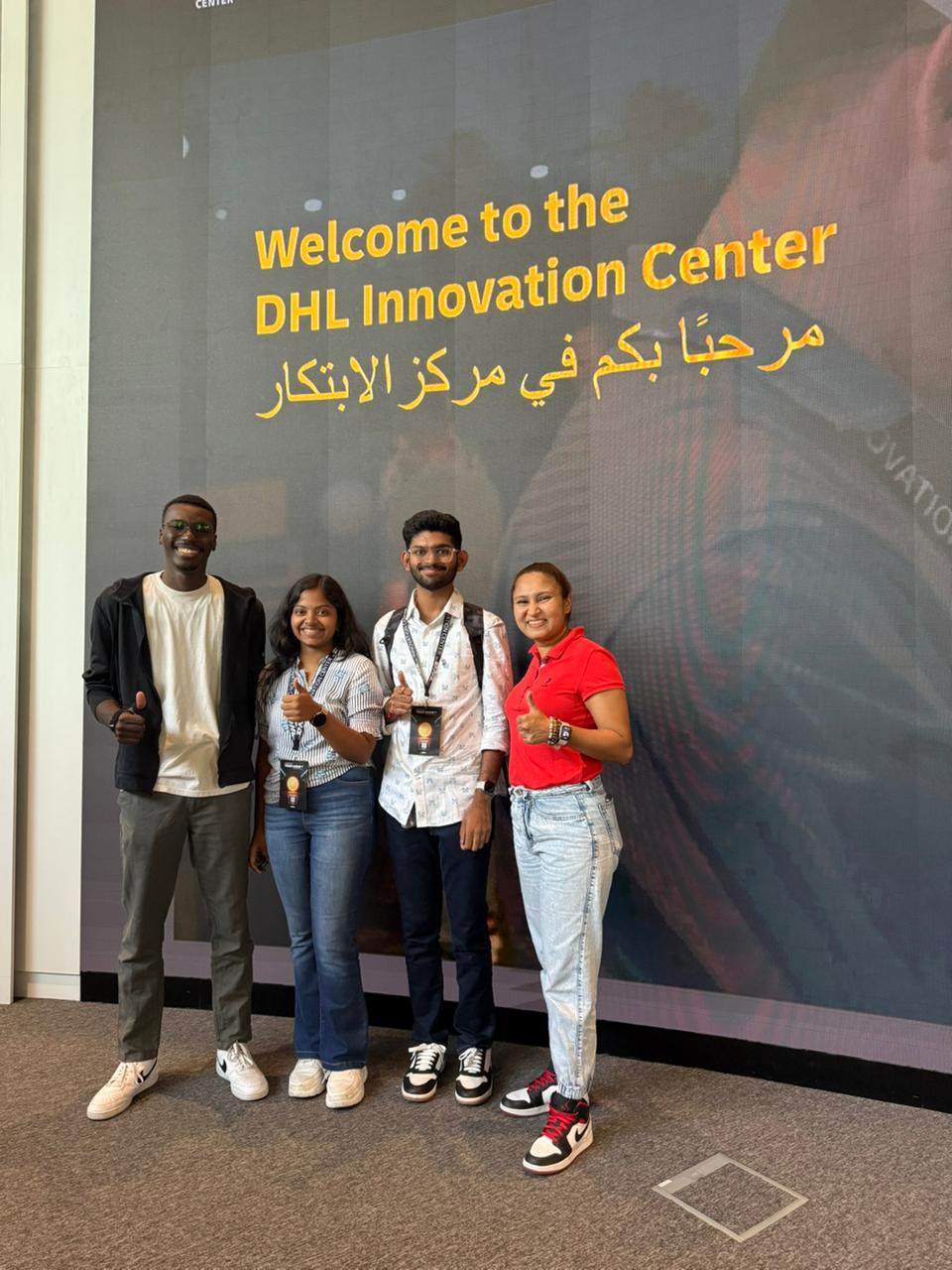 The Directorate of International Relations and Higher Studies successfully organised a Winter Global Immersion Programme in collaboration with Immersion Global at Middlesex University Dubai in 2024. Two of our students, one from BBA. – Business Administration (Hons.) and another from the Department of Computer Science and Engineering (CSE), participated in this enriching experience from November 5 to November 16, 2024
The Directorate of International Relations and Higher Studies successfully organised a Winter Global Immersion Programme in collaboration with Immersion Global at Middlesex University Dubai in 2024. Two of our students, one from BBA. – Business Administration (Hons.) and another from the Department of Computer Science and Engineering (CSE), participated in this enriching experience from November 5 to November 16, 2024An incredible opportunity for Indian students to travel, explore, and learn! International University Immersion Programmes are thoughtfully curated at some of the world’s top universities and institutions to provide a global edge in learning and set students up for success.
In the Winter Immersion Programme 2024, organised by Immersion Global, SRM AP University students embarked on a transformative two-week journey. They had the unique privilege of participating in a prestigious programme at Middlesex University Dubai.
Our students immersed themselves in the vibrant technological hub of Dubai, UAE, gaining hands-on experience and valuable insights into cutting-edge advancements.
Programme Highlights:
- Explored innovative business models and entrepreneurship.
- Acquired skills in Design Thinking, Digital Marketing, and the fundamentals of Management & Financial Studies.
- Attended specialised courses on Accounting, Marketing Strategies, and Leading in a Cross-Cultural Context.
- Engaged in sessions on Business and Sustainability, Leading and Managing Change, and understanding the integration of AI in Business Leadership theories.
Alongside their academic endeavors, students were captivated by Dubai’s technological innovations and architectural marvels. Their journey also took them to the vibrant cities of the UAE—Dubai, Sharjah, and Abu Dhabi—where they embraced cultural diversity, explored local cuisines, and overcame barriers of tradition and innovation, further enriching their global outlook.
This exceptional experience reflects not only the outstanding leadership and technical expertise of our student Kesava but also the world-class education and unwavering support provided by SRM University-AP. We are incredibly proud of Kesava and his team and eagerly anticipate their future achievements in the realm of remote sensing and beyond.
Continue reading → - Discover India 2025: SRM AP Host Delegates from Ryukoku University March 17, 2025
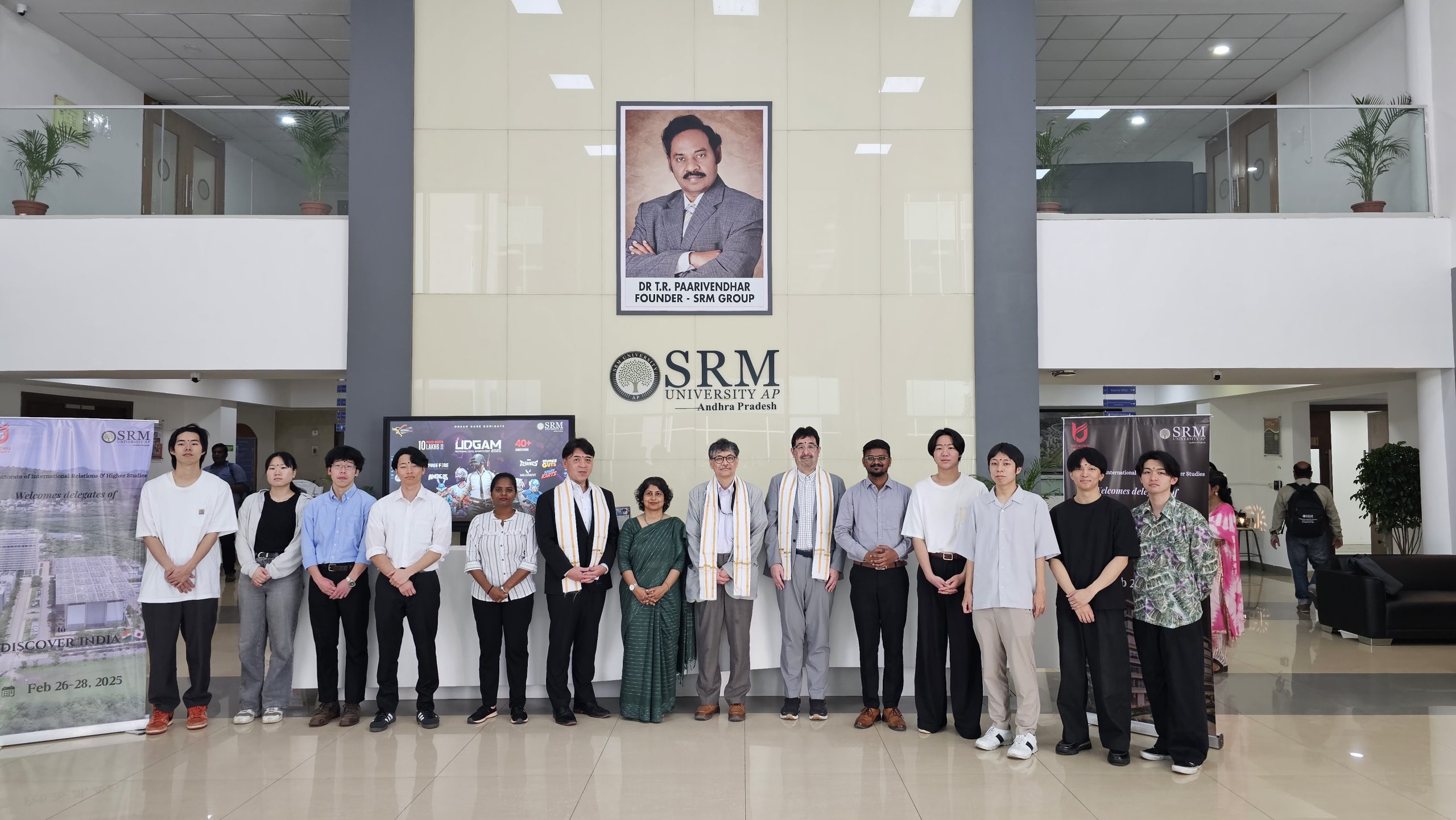 The Directorate of International Relations & Higher Studies welcomed the students and faculty from Ryukoku University, Japan for the “Discover India 2025 ” programme.
The Directorate of International Relations & Higher Studies welcomed the students and faculty from Ryukoku University, Japan for the “Discover India 2025 ” programme.A 4-day Discover India 2025 programme conducted by the Directorate of International Relations and Higher Studies was inaugurated by Dr K A Sunitha – Associate Professor and Head, Department of Electronics and Communication Engineering alongside Dr Mahesh Kumar Ravva – Associate Professor and Assistant Dean Research; Dr Ishita Sar – Assistant Professor from Paari School of Business and Prof. P Vivekananda Shanmuganathan – Professor, Mechanical Engineering. “Discover India 2025” is a flagship initiative of the university to promote India’s cultural and knowledge traditions.
Dr Sudeshna Saha, Assistant Director of International Relations and Higher Studies, received the international students at the grand inaugural ceremony of the programme. Students participated in various short courses on research area, visits were made to Electronic Cooling Lab, Computer Science and Engineering labs, Research Lab’s, Civil Engineering Labs and Drone and Centre for Geospatial Technologies.
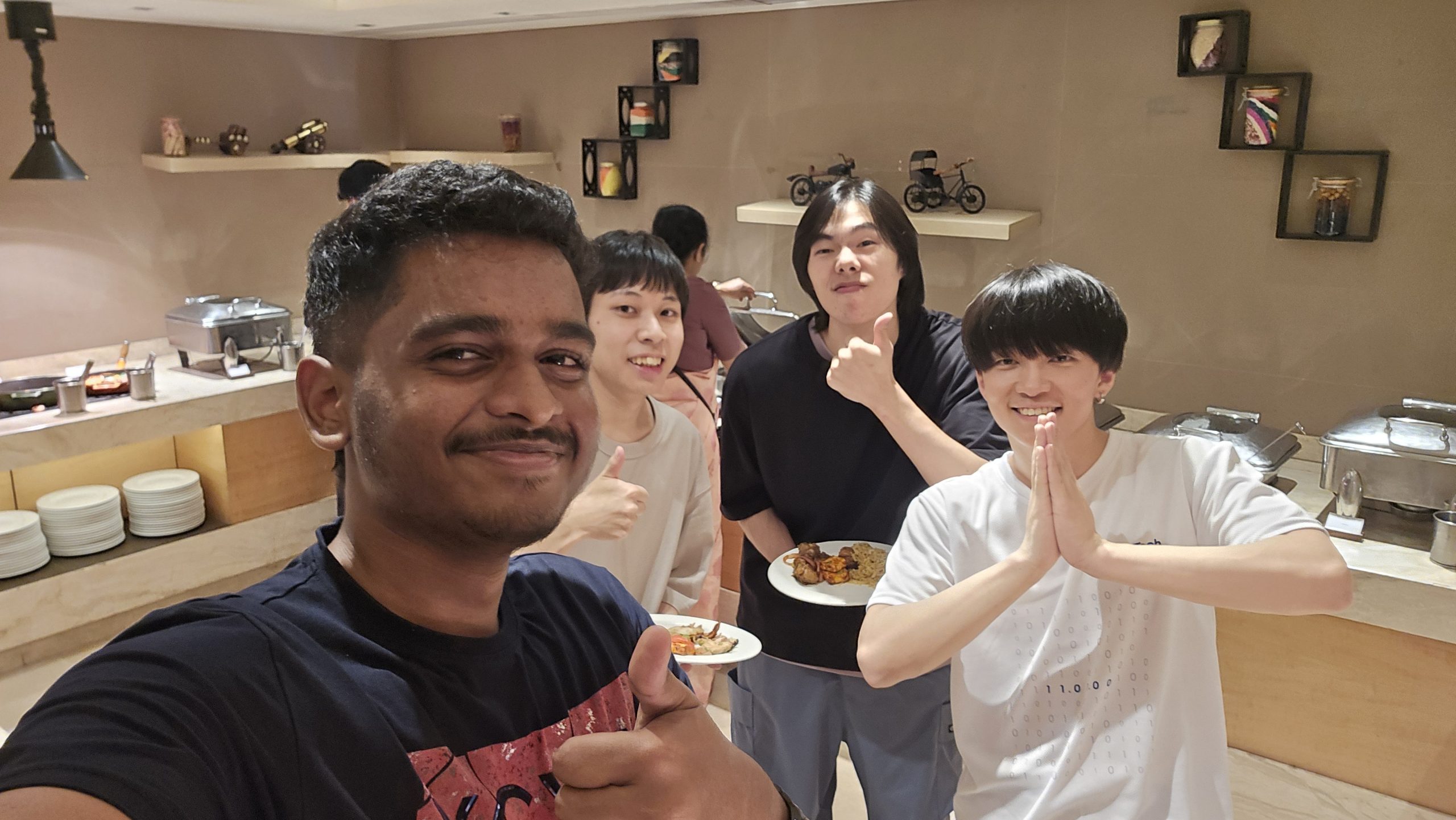
A discussion was held with the IR & HS team and with the leadership team regarding various mobility programmes, including Student and Faculty Exchange, Transfer Programmes, Joint Research initiatives, and opportunities for mutual collaboration between Ryukoku University and SRM University-AP.
An interactive session was organised for Destination Japan students currently learning Japanese at SRM University-AP, supported by SRM Global. Professors Otsu Hirotaka & Prof. Kimura Mutsumi delivered an engaging presentation on Ryukaku University, highlighting job and internship opportunities in Japan. The session provided a platform for Destination Japan students to interact with peers learning Japanese. Over 52 students actively participated, making the event a resounding success.
As part of the “Discover India” programme, SRM University-AP organised an industrial visit to HCL Technologies Limited, Vijayawada, on February 26, 2025. A total of 15 participants, including professors, staff, and students from Ryukoku University, Forum Engineering, and SRM University-AP, attended. The Japanese group had a valuable experience, interacting with HCL’s Health Center and the Head of Training and Recruitment team.
Participants visited landmarks such as the Dhyana Buddha statue, Bhavani Island and the Kanaka Durga Temple in Vijayawada, deepening their appreciation of Indian culture.
Continue reading → - Department of Management Hosts Event on Work life Balance March 17, 2025
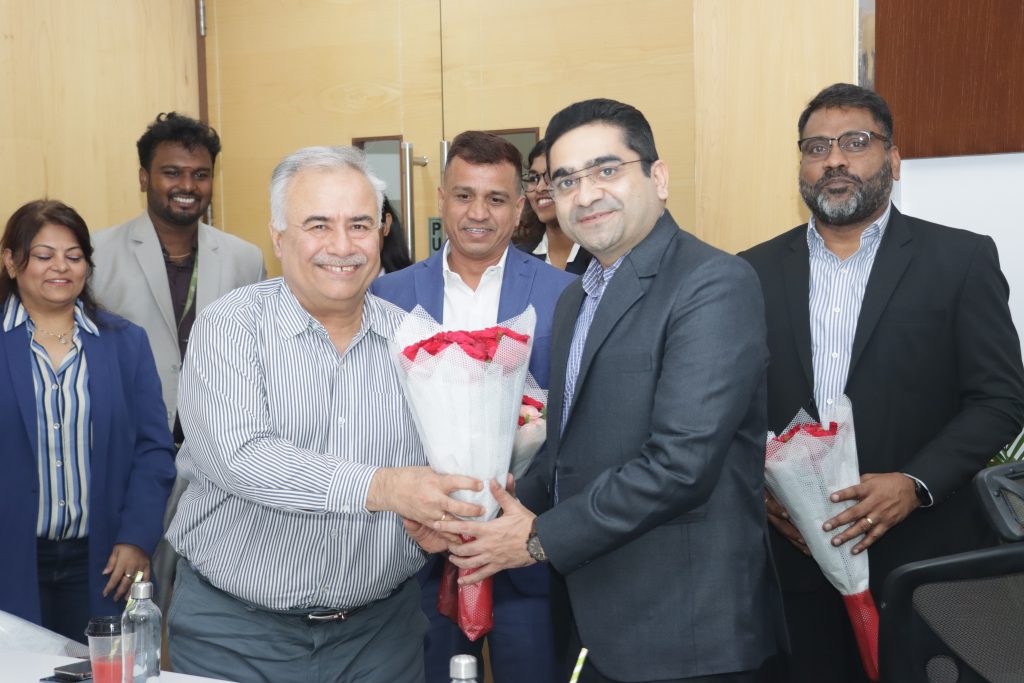 SRM University-AP hosted the second edition of its flagship event, Trending Issues in Management organised by the Department of Management at the Paari School of Business. The theme of the event -“Work Life Balance”, was inspired by the provocative remarks from prominent corporate leaders such as Narayan Murthy and S N Subrahmanyan.
SRM University-AP hosted the second edition of its flagship event, Trending Issues in Management organised by the Department of Management at the Paari School of Business. The theme of the event -“Work Life Balance”, was inspired by the provocative remarks from prominent corporate leaders such as Narayan Murthy and S N Subrahmanyan.The business event brought together industry experts, including Mr Krishna Repaka, Vice President Deloitte India; Dr Deepak Bidla, Director HR, Ex—Quadrant; Ms Roshni M J, Senior Director, Netenrich Inc., as panellists; Dr Chinta Doshi, Senior Director HR Nium, as the keynote Speaker; and Prof. Bharadwaj Sivakumaran, Dean Paari School of Business, as the moderator for the event.
Dr Chintan Doshi, set the tone for the event through his keynote address. He highlighted eight pointers that stressed on the fundamental topic of why one must work. Mr Doshi stated that money of course is one parameter for why one should work, but respect, prestige, being an inspiration to someone and working for credibility and reputation are other factors that surpass the monetary benefits.
During the panel discussion, the industry experts unanimously emphasised the need for work-life balance, but they also echoed that one must strike a balance between work and personal life. Ms Roshni emphasised that team and organisation are important factors that need to be brought into consideration. She stated team deadlines and individual interest are considering factors at times.
Mr Krishna Repaka, Vice President at Deloitte India, remarked, “As students, we have all dedicated those extra hours to hard work during our examinations when the need has risen, we never backed out because it disrupted our personal life balance. Similarly when need rises we all need to pitch in to put that extra effort.” Adding to this Mr Deepak Bidla stated, “Collaboration is key, but more than extended work hours productivity is what matters.”
The panellist discussed the impact of technology, which stimulated mixed responses. The panel stated that technology is an enabler, but how one consumes it is an important factor. The panel discussion also examined the COVID-19-induced work-from-home culture and its continuation post-COVID-19. The panel also agreed that the hybrid model of work has been a boon in many ways for those who can. While it is a boon, the mindset one has while working from home also matters.
The event concluded by emphasising a crucial balance between professional commitment and mental well being. While factors like the need to unwind and relax are important, it is also not important to consider factors such as commitment, productivity and accountability at work.
Continue reading →


